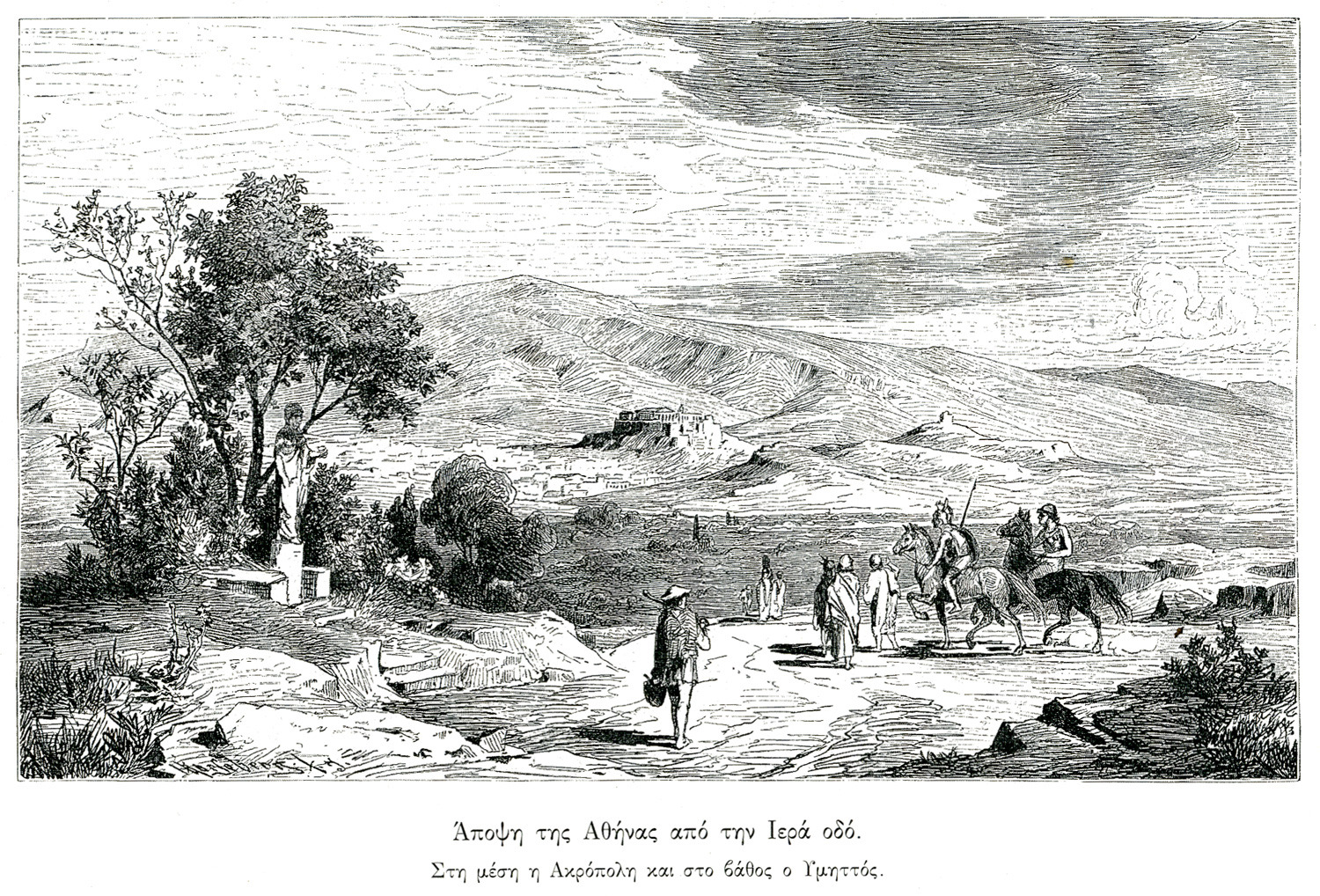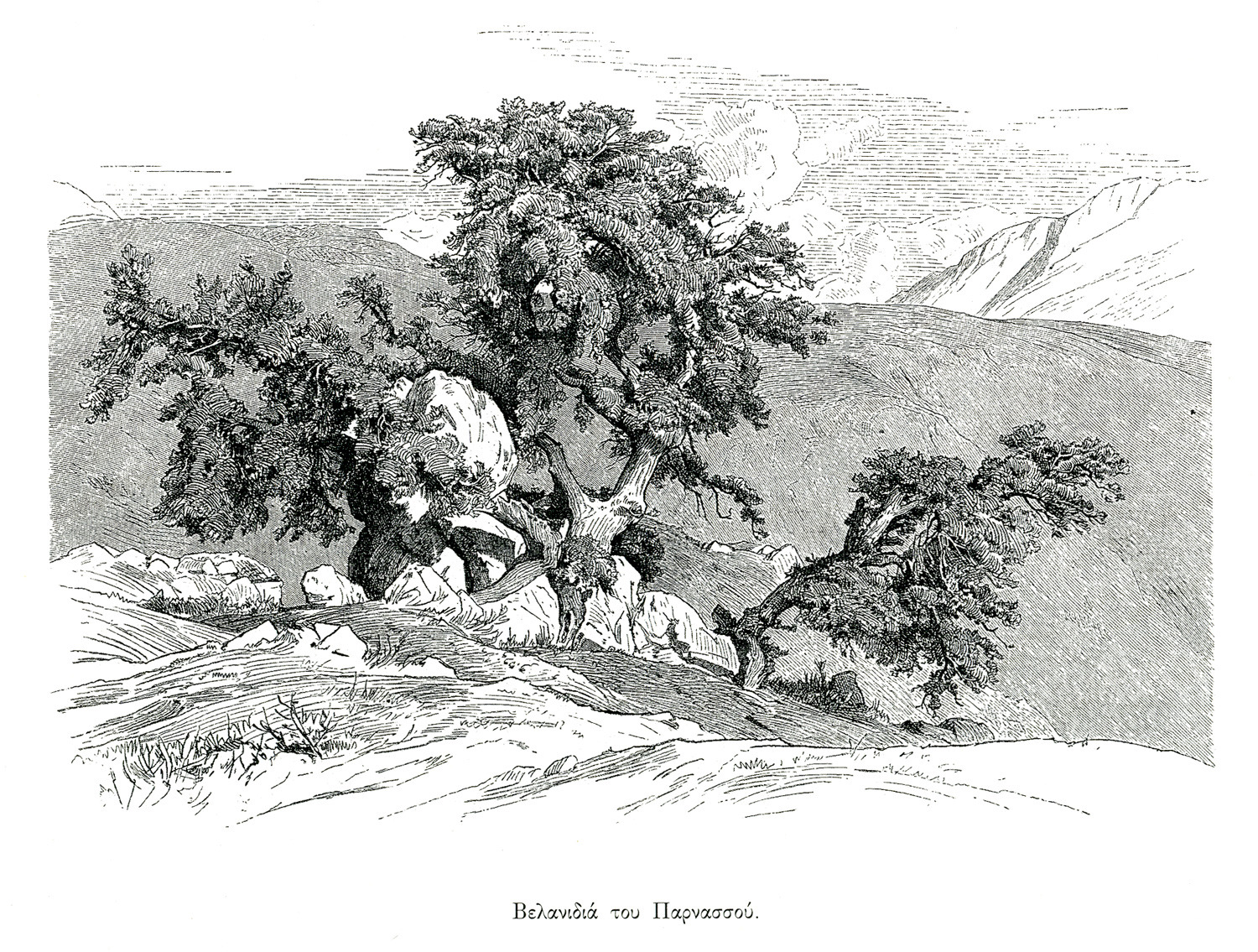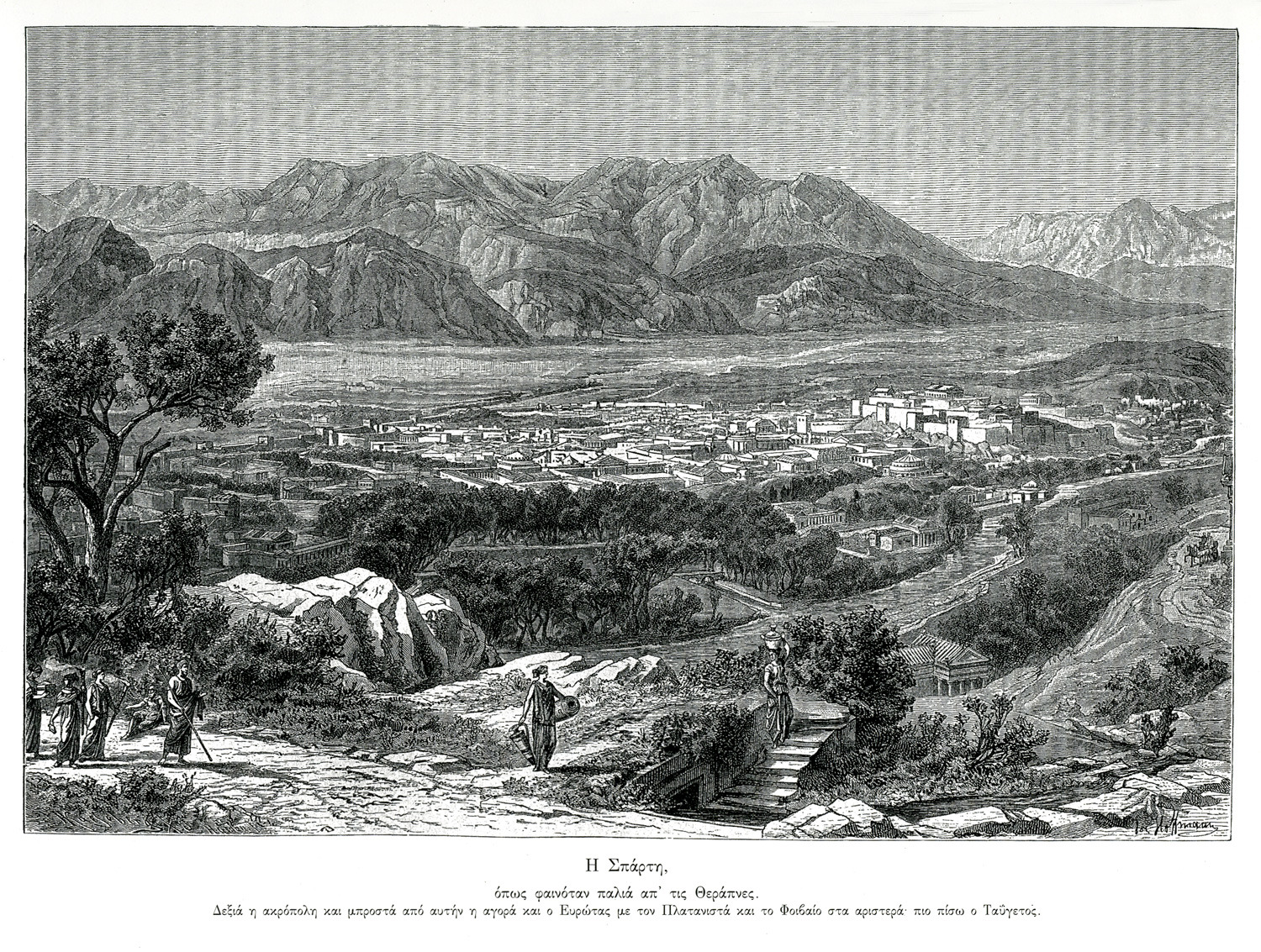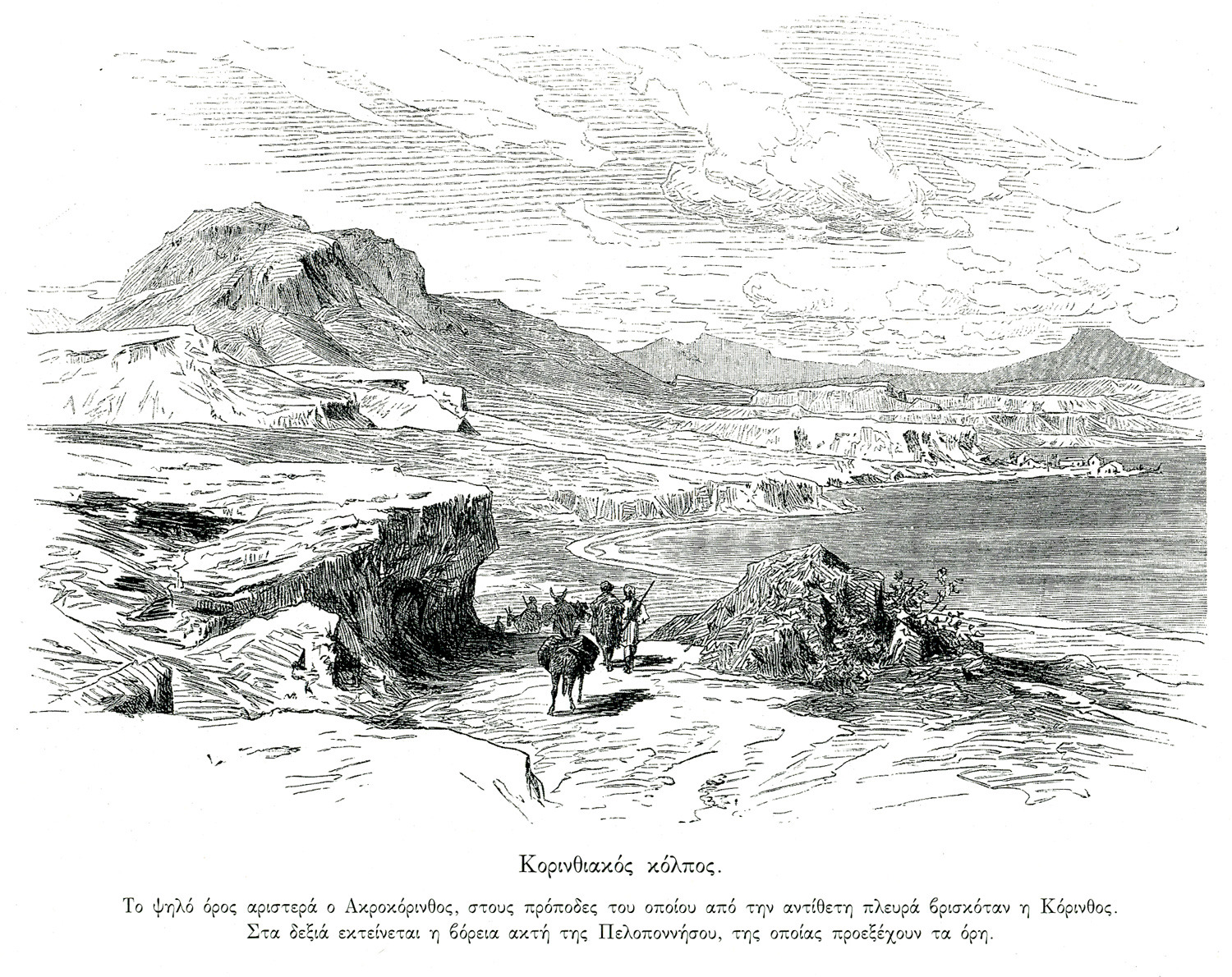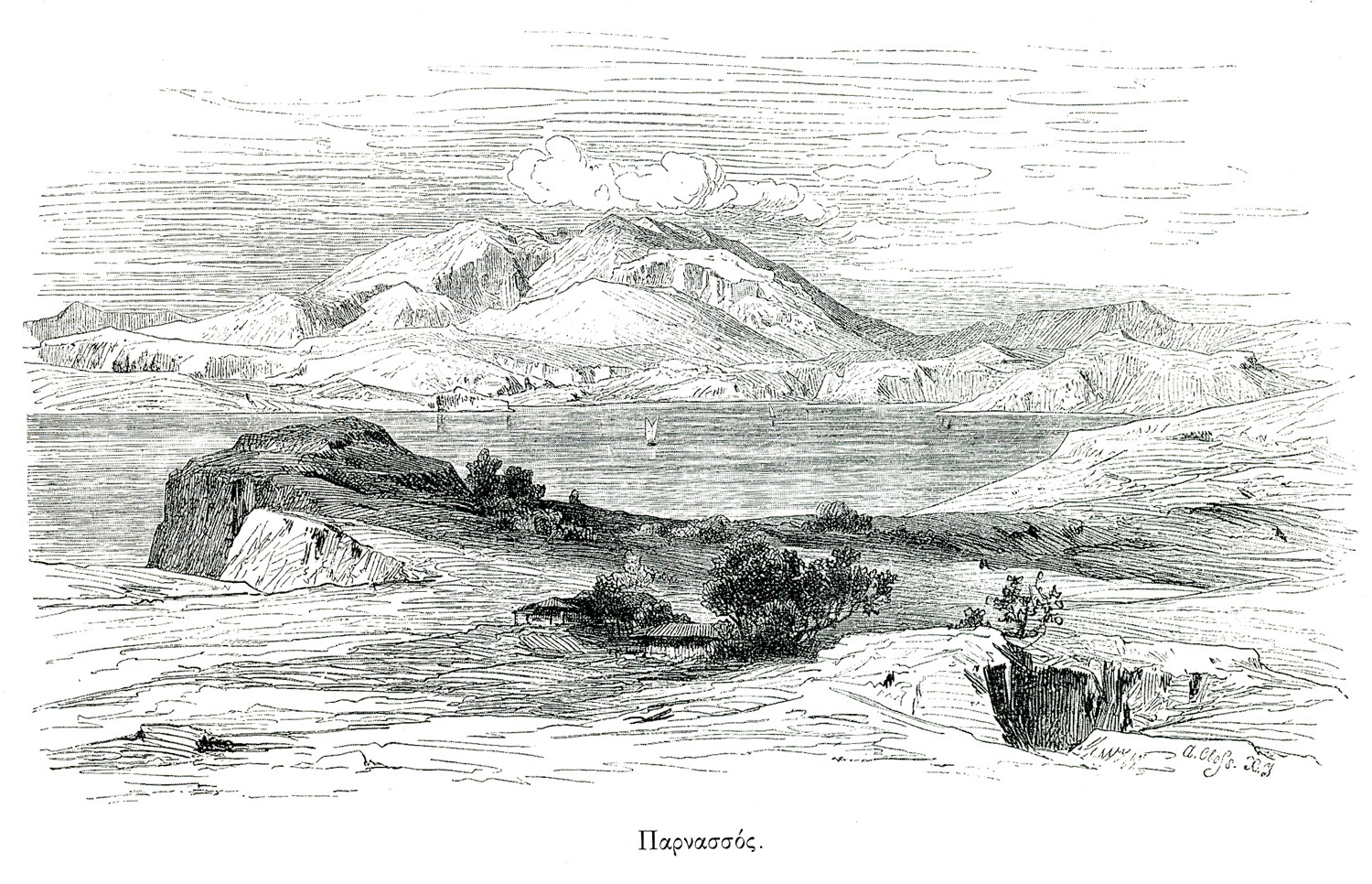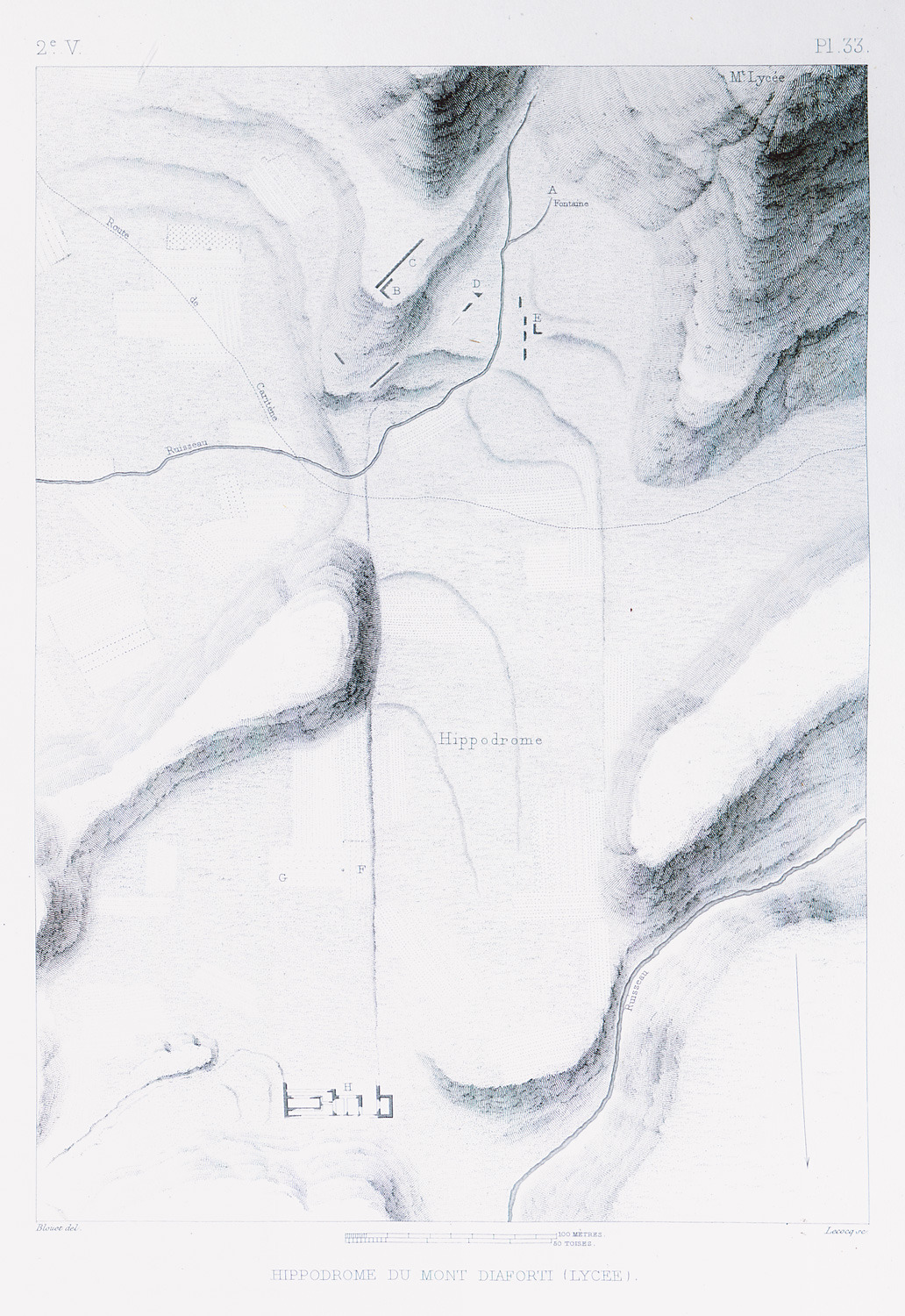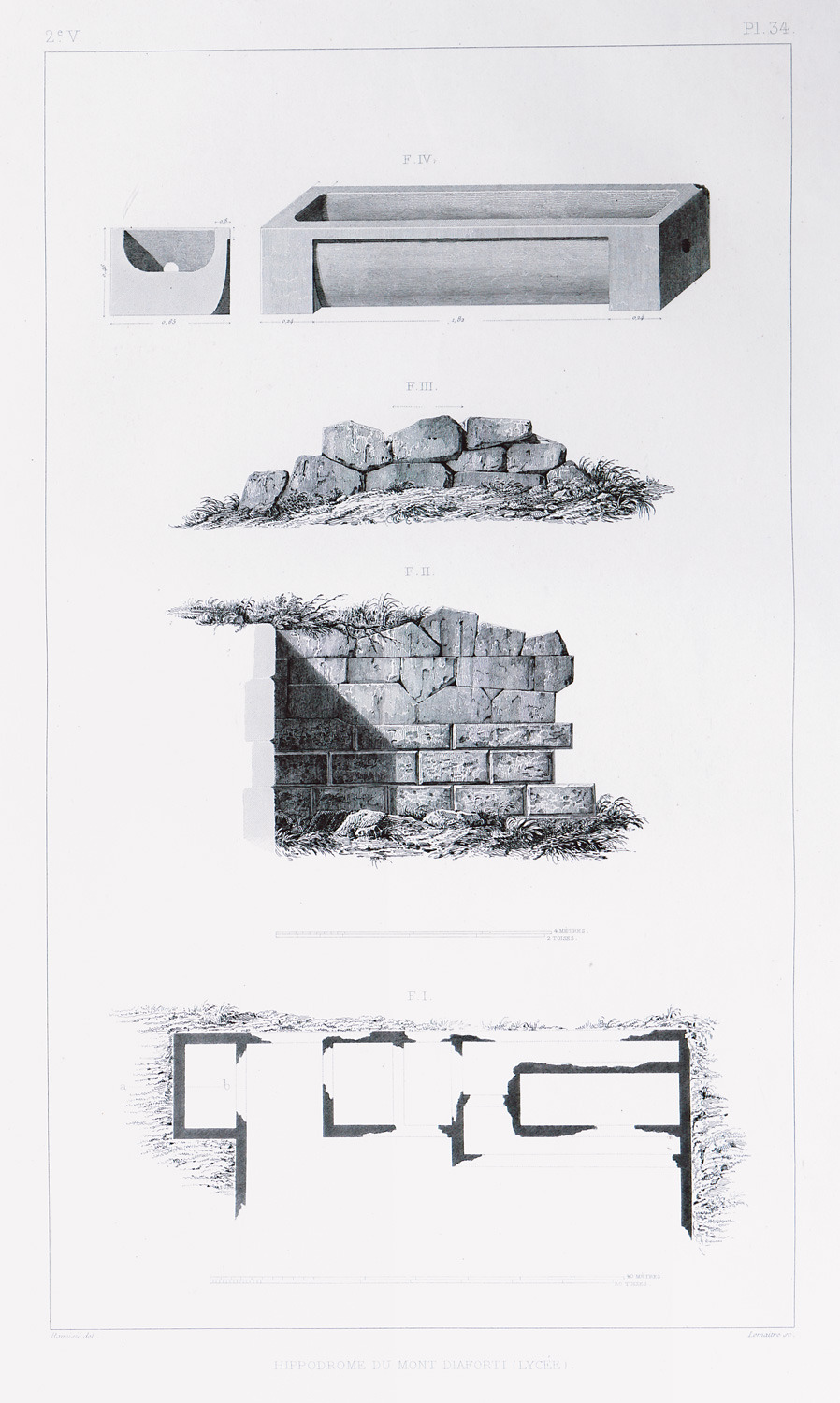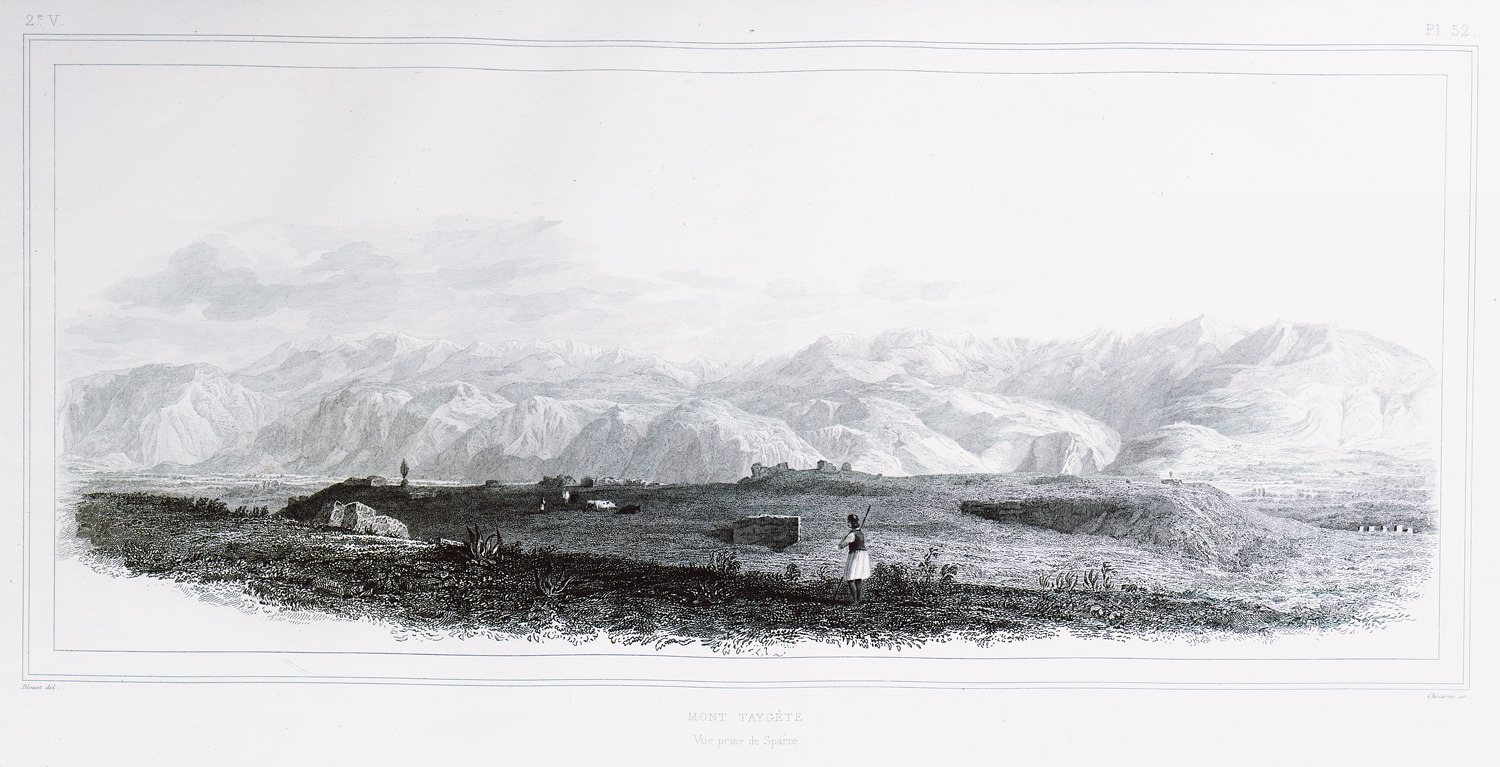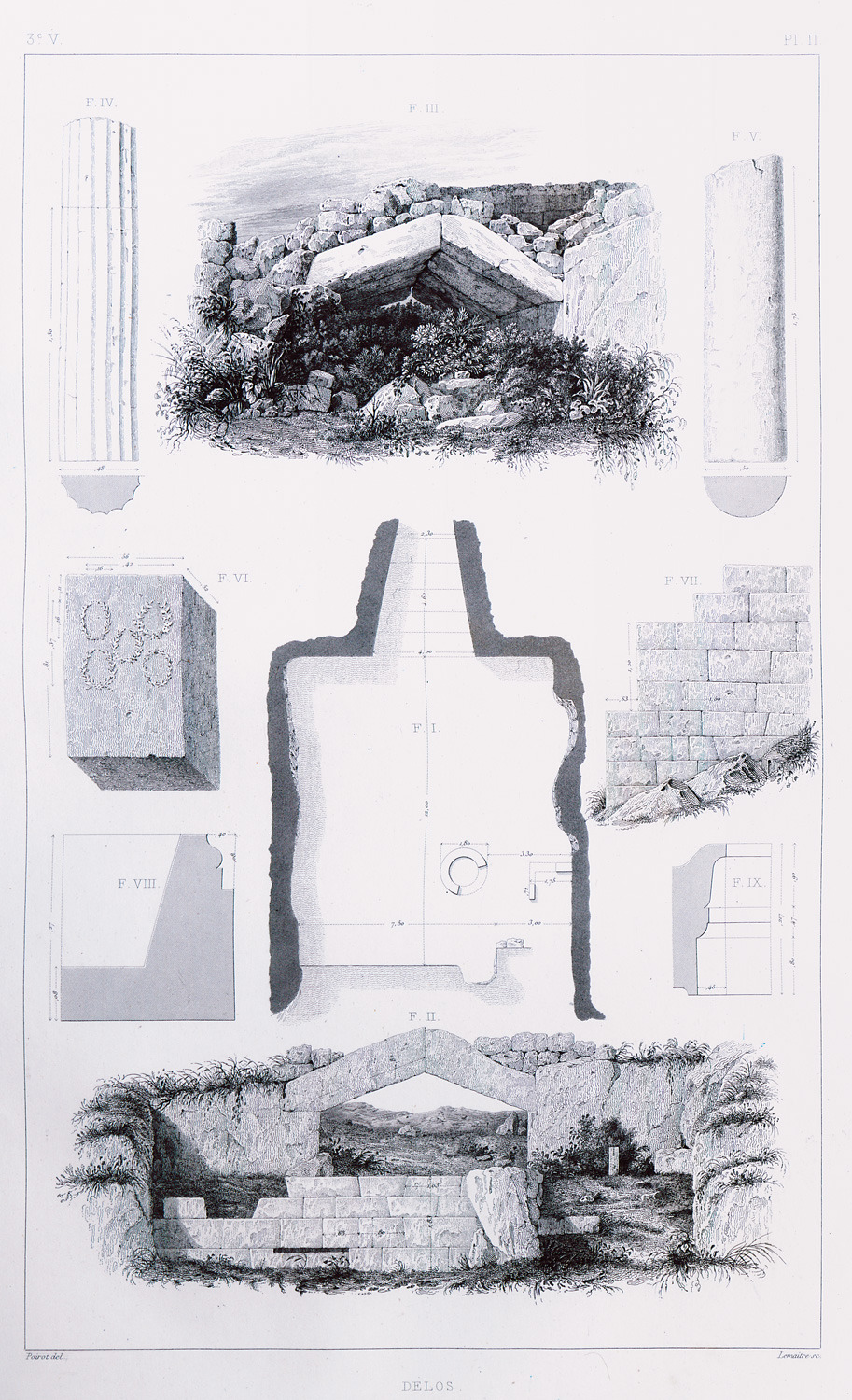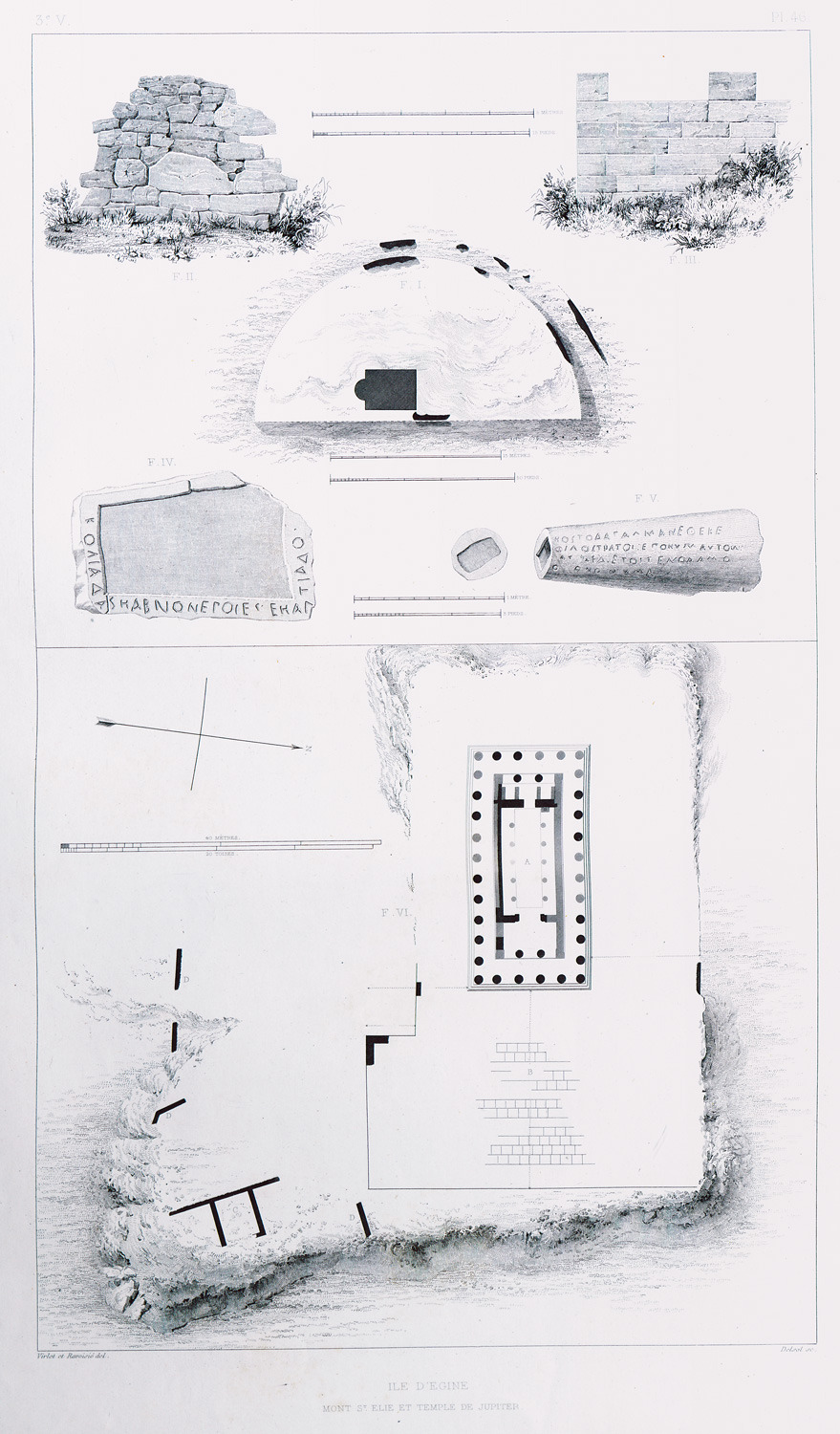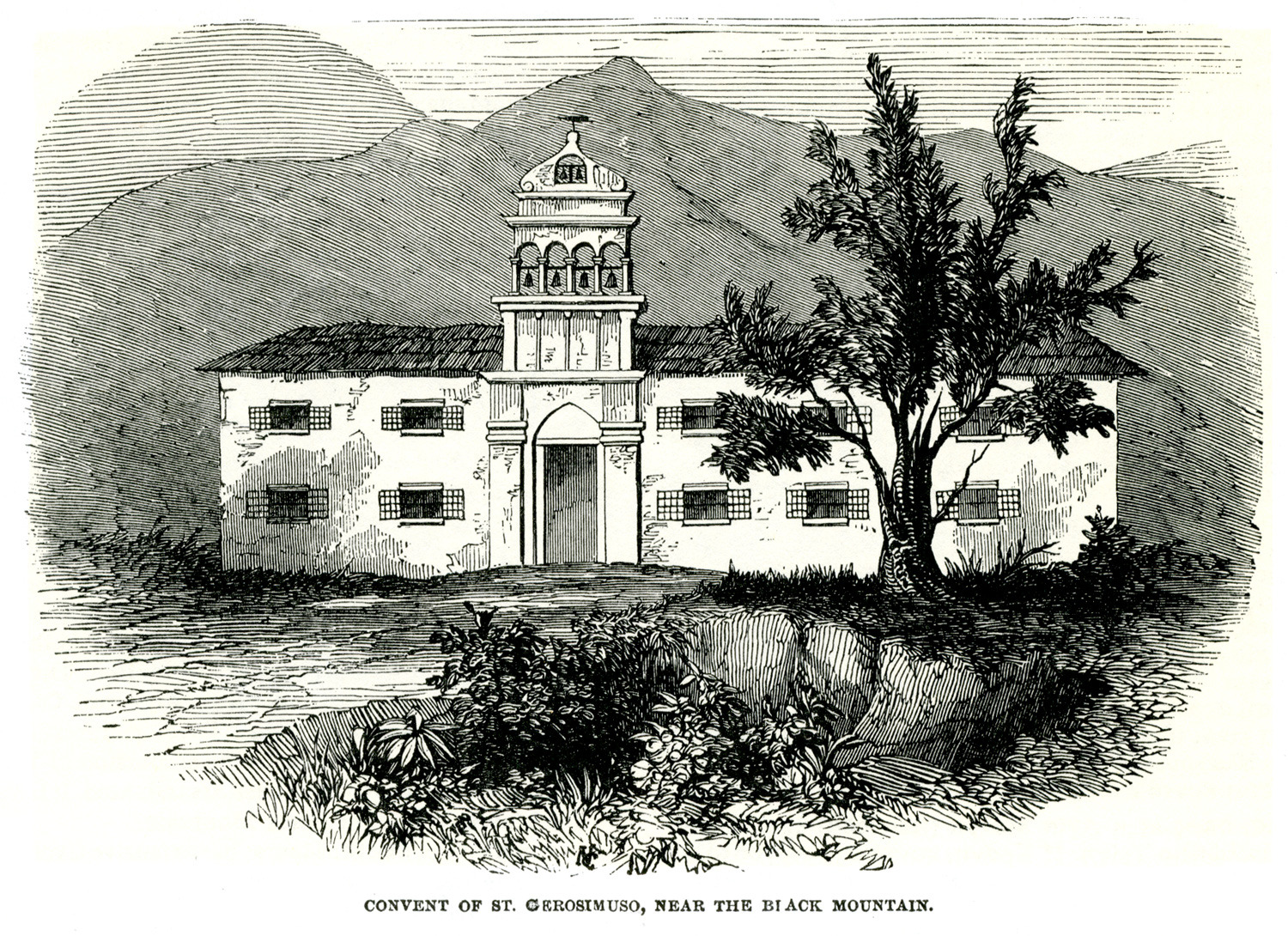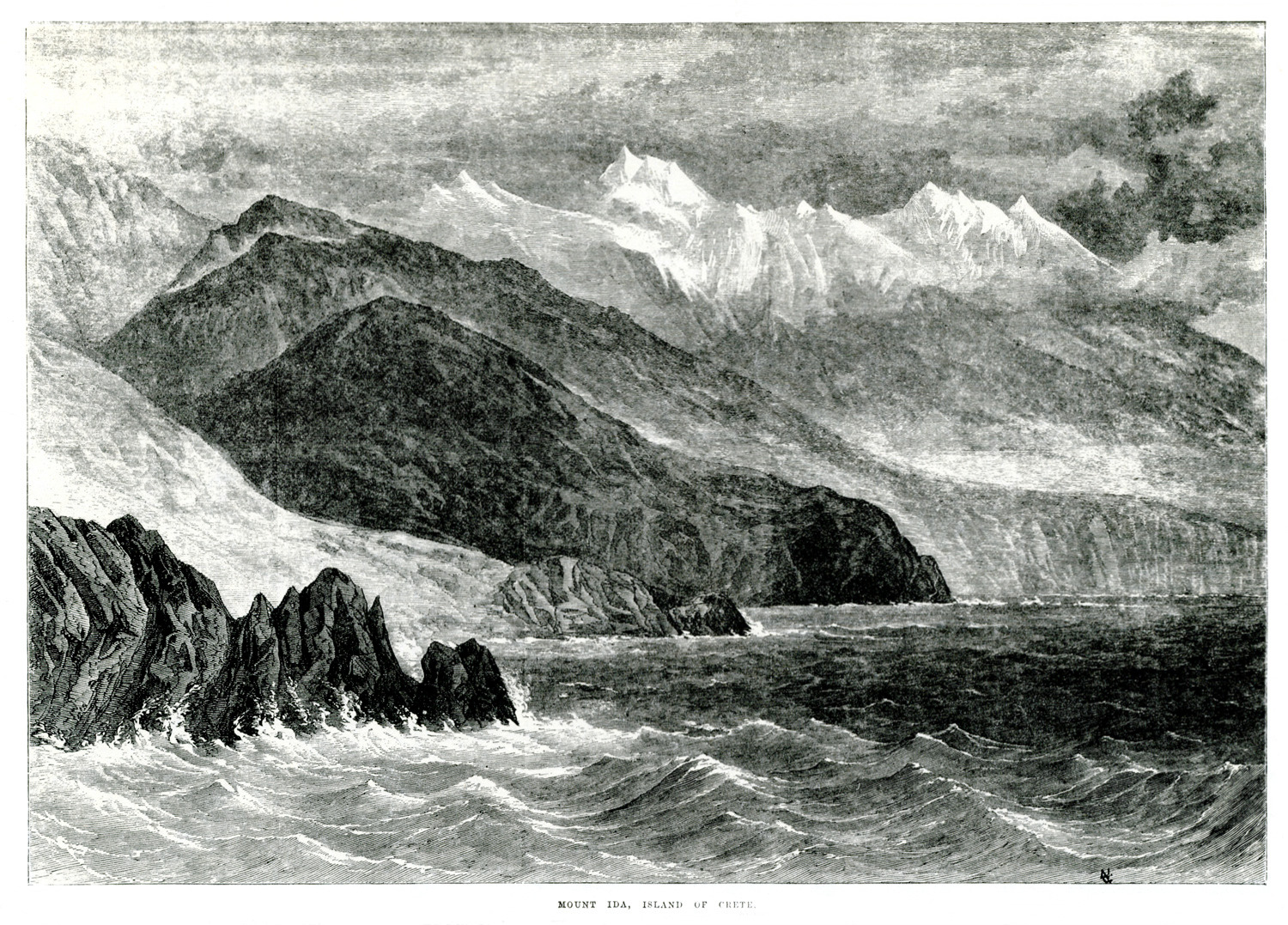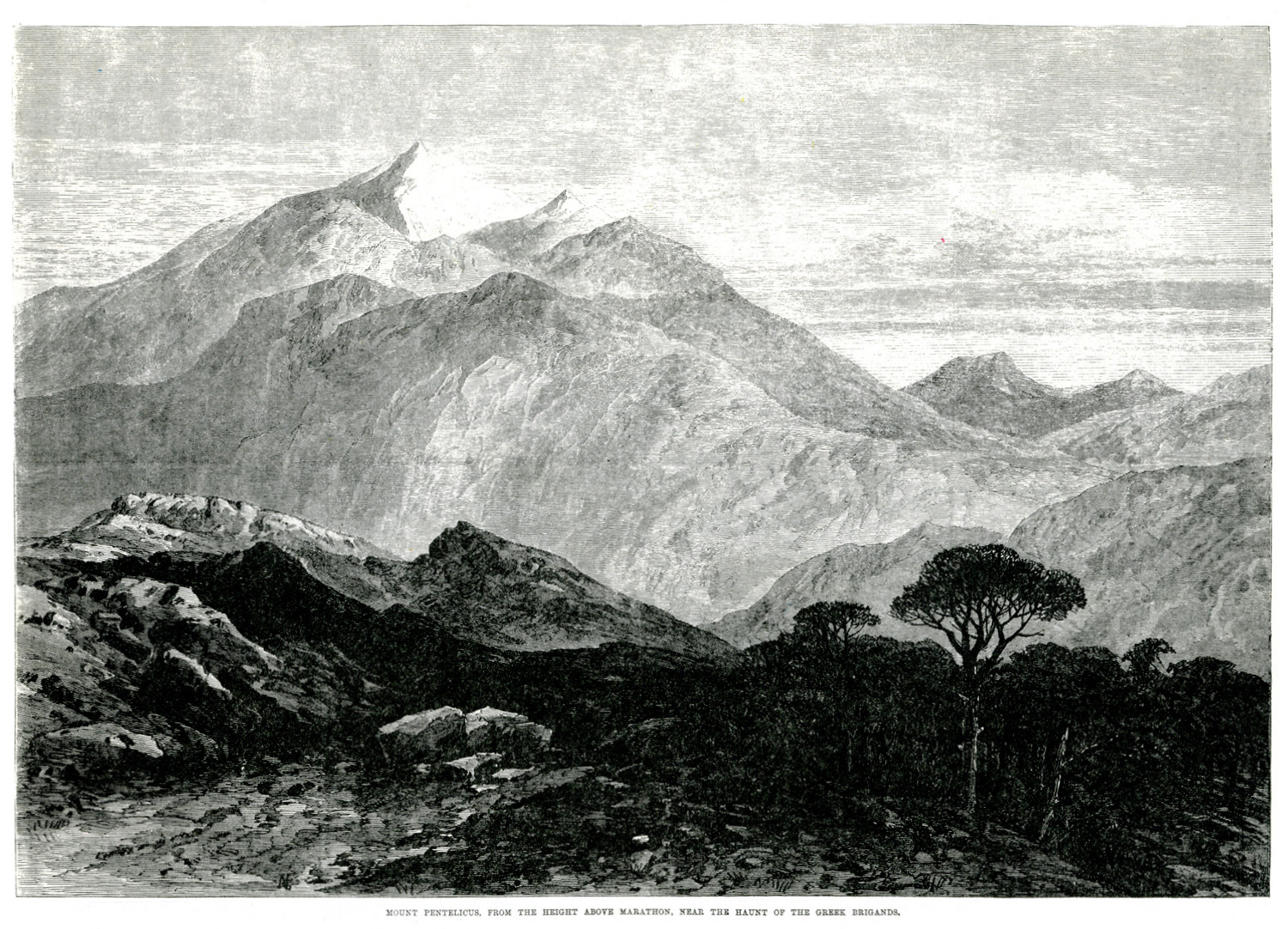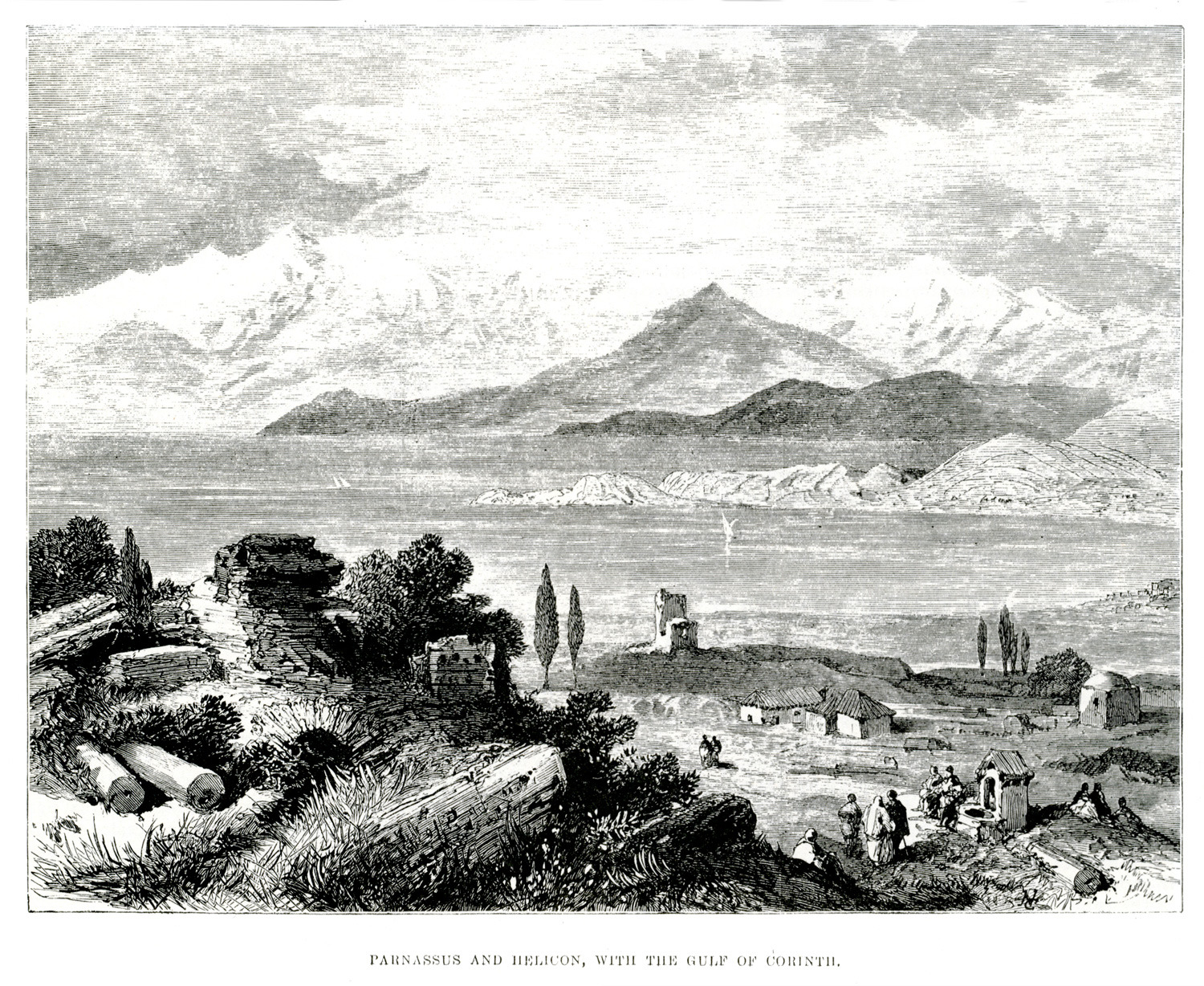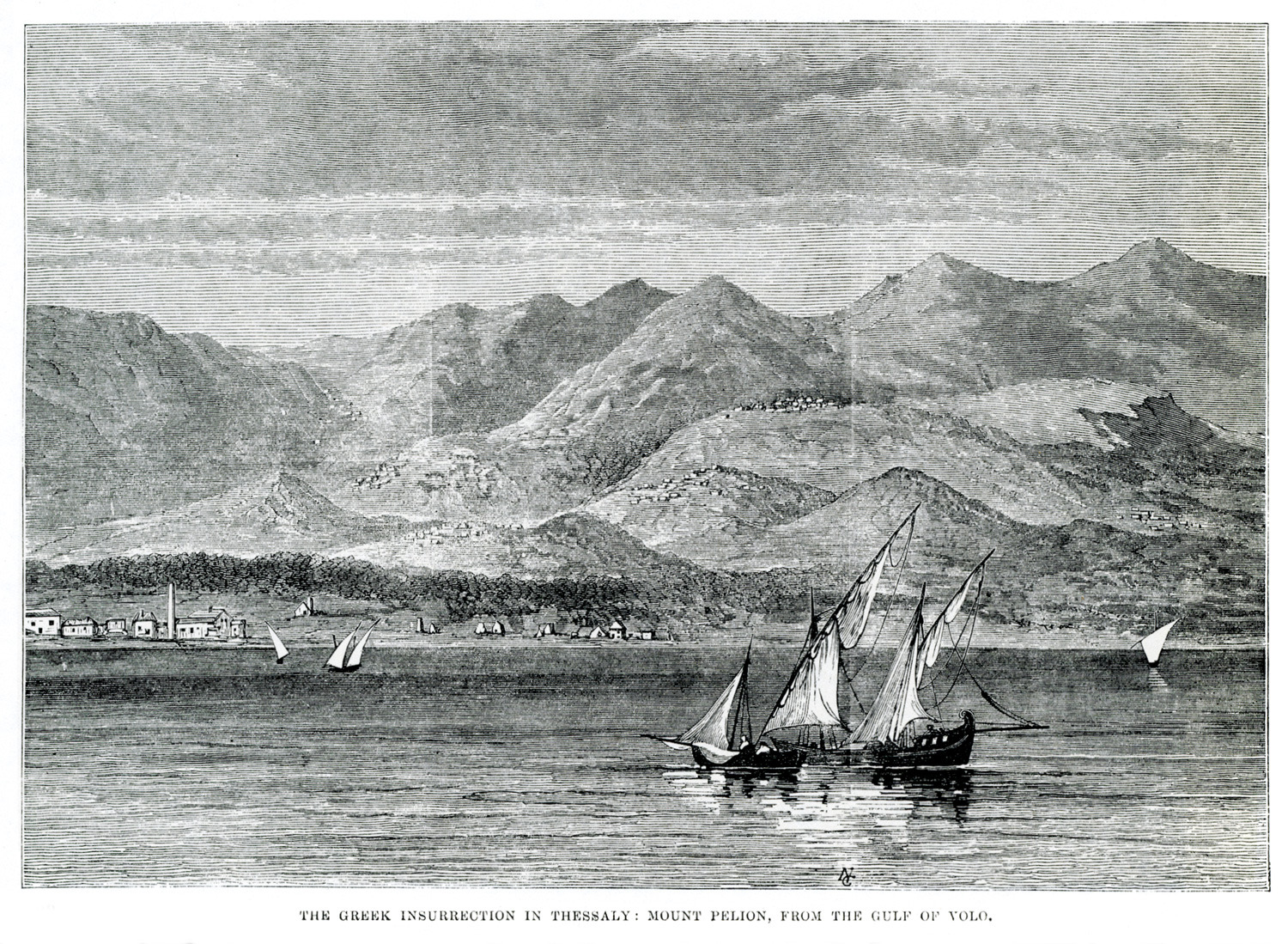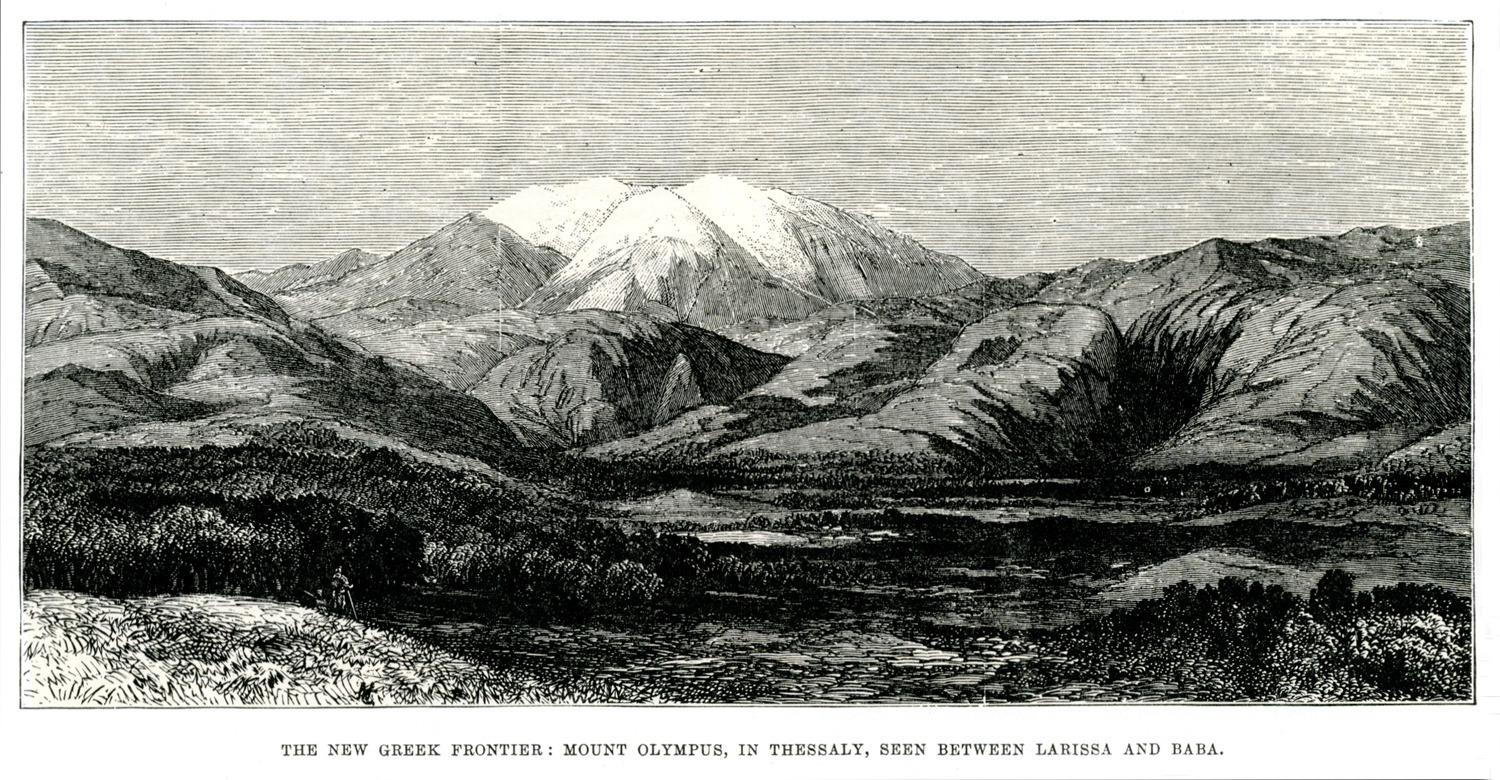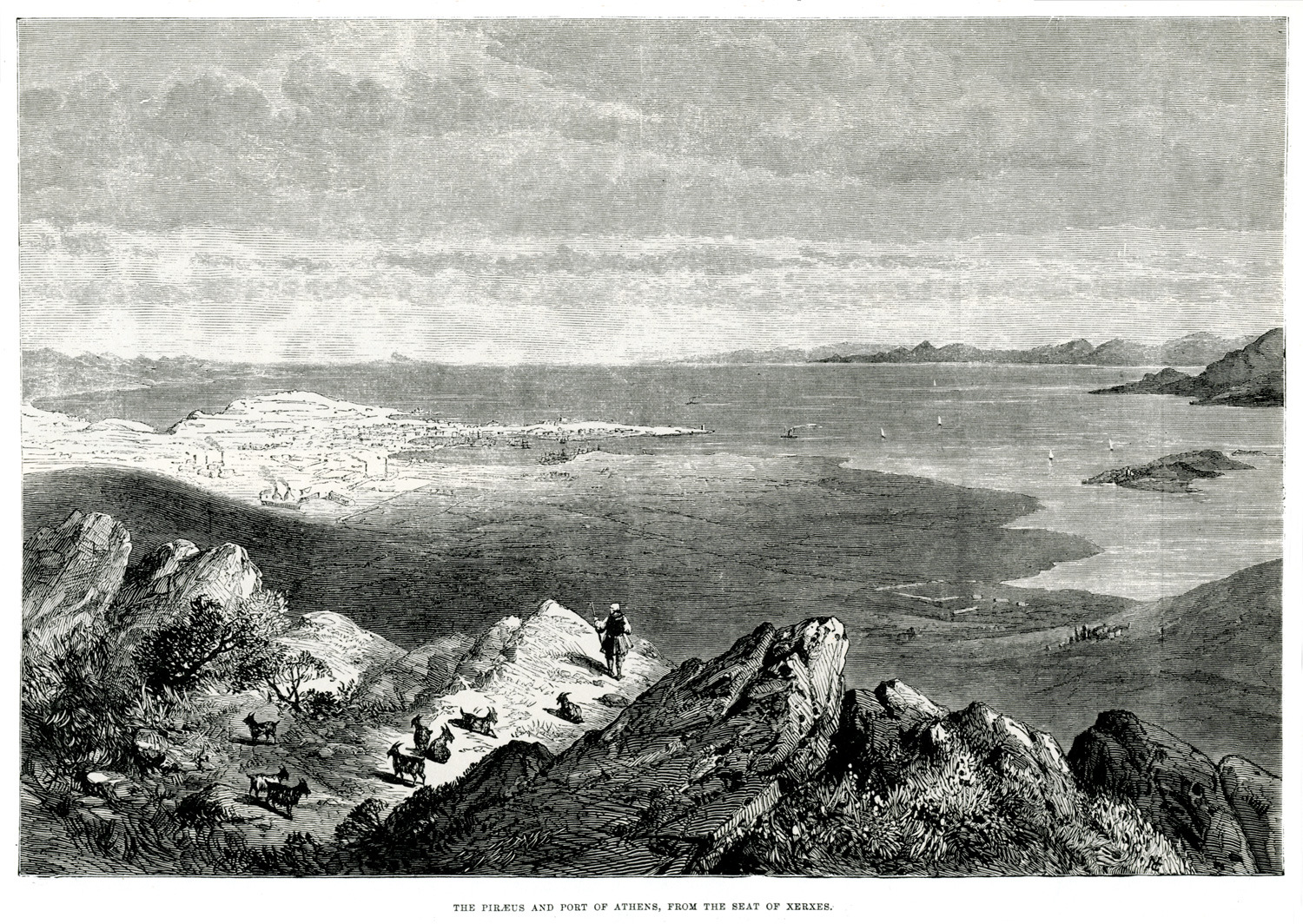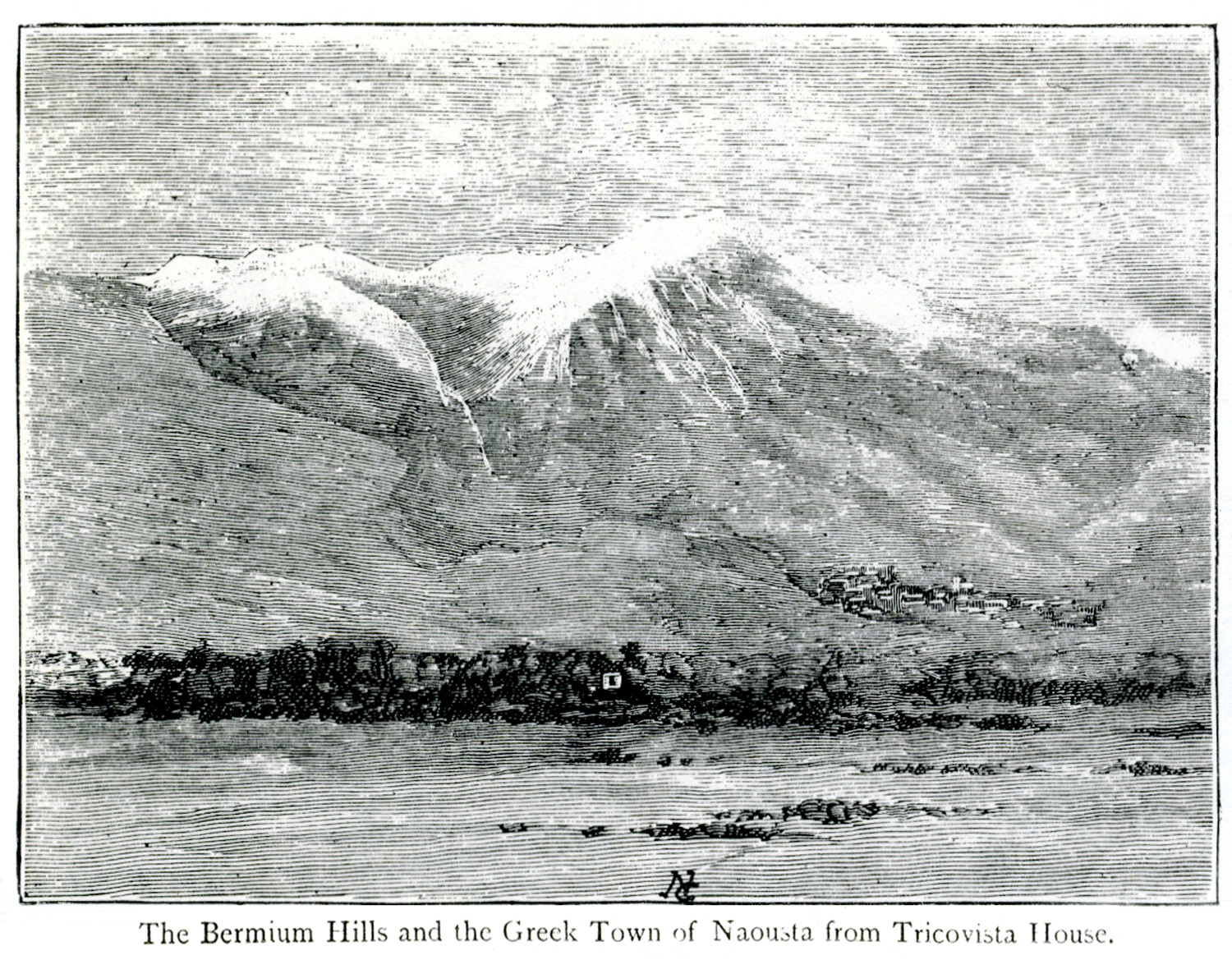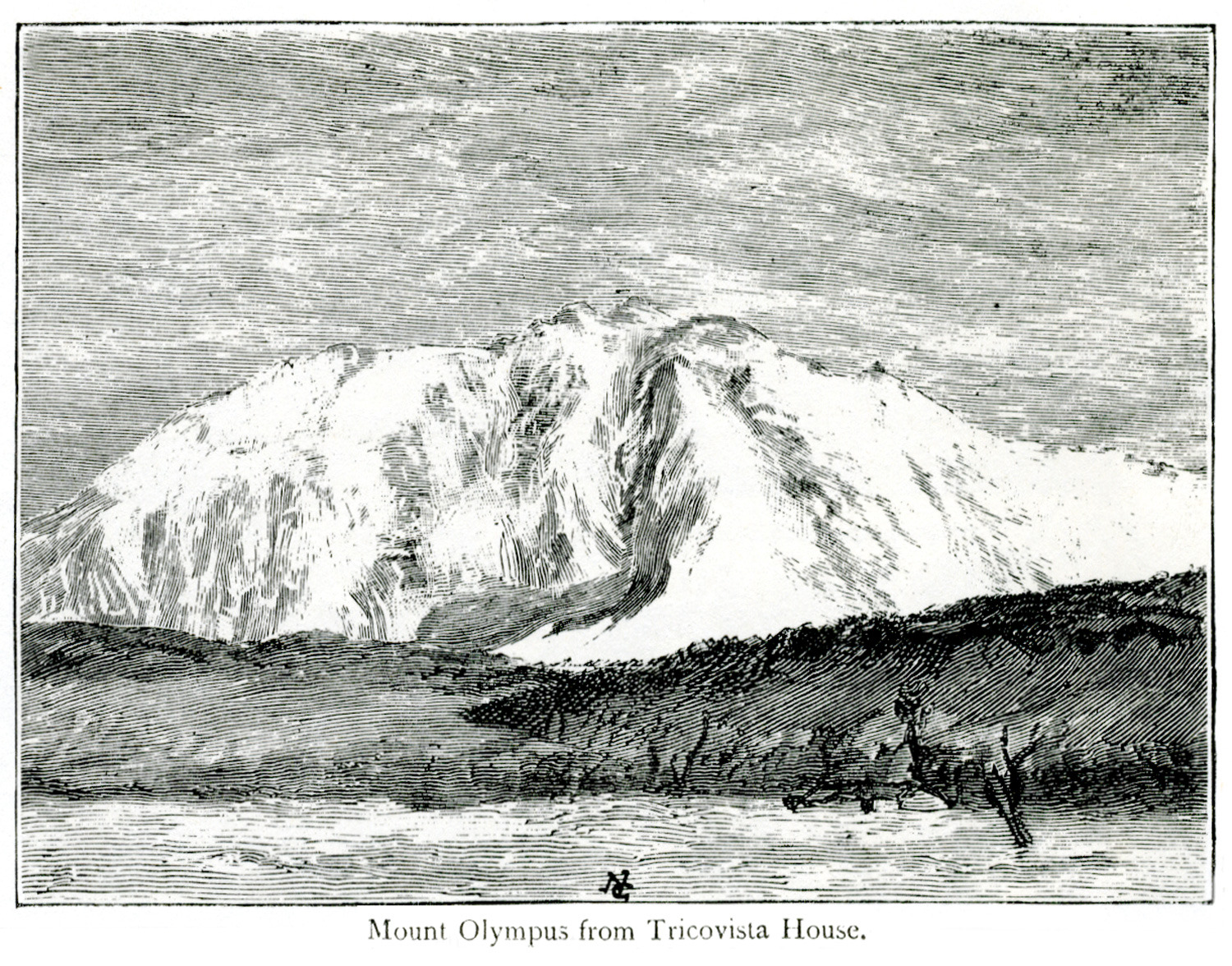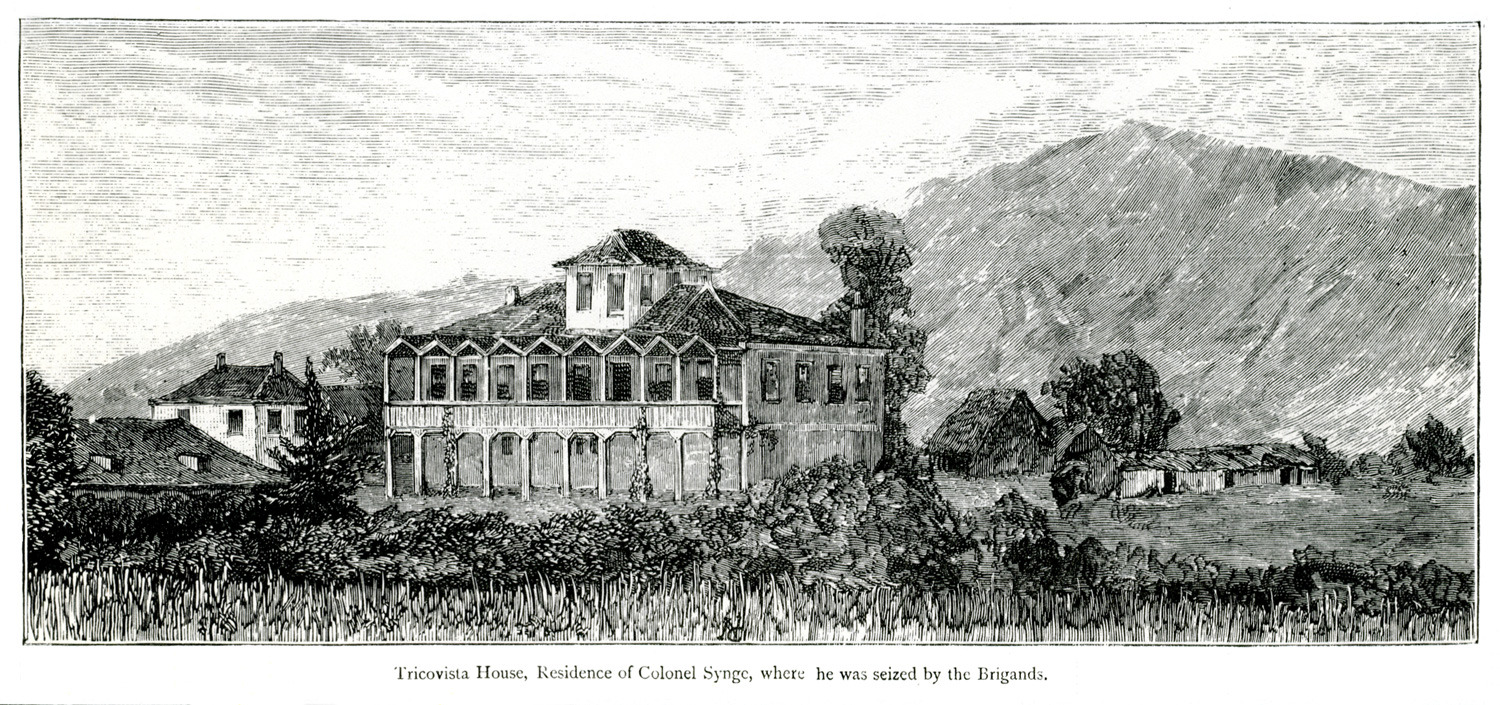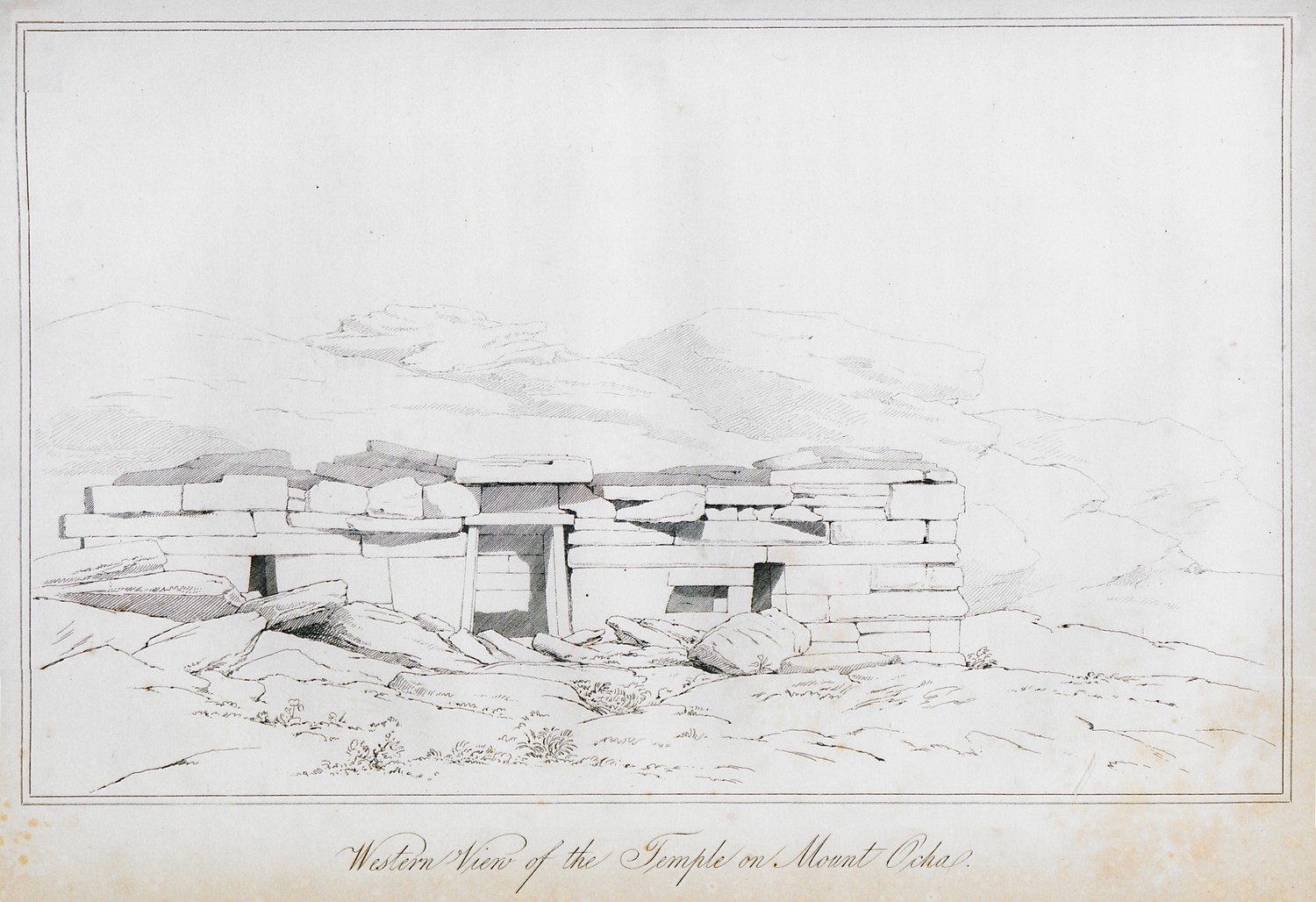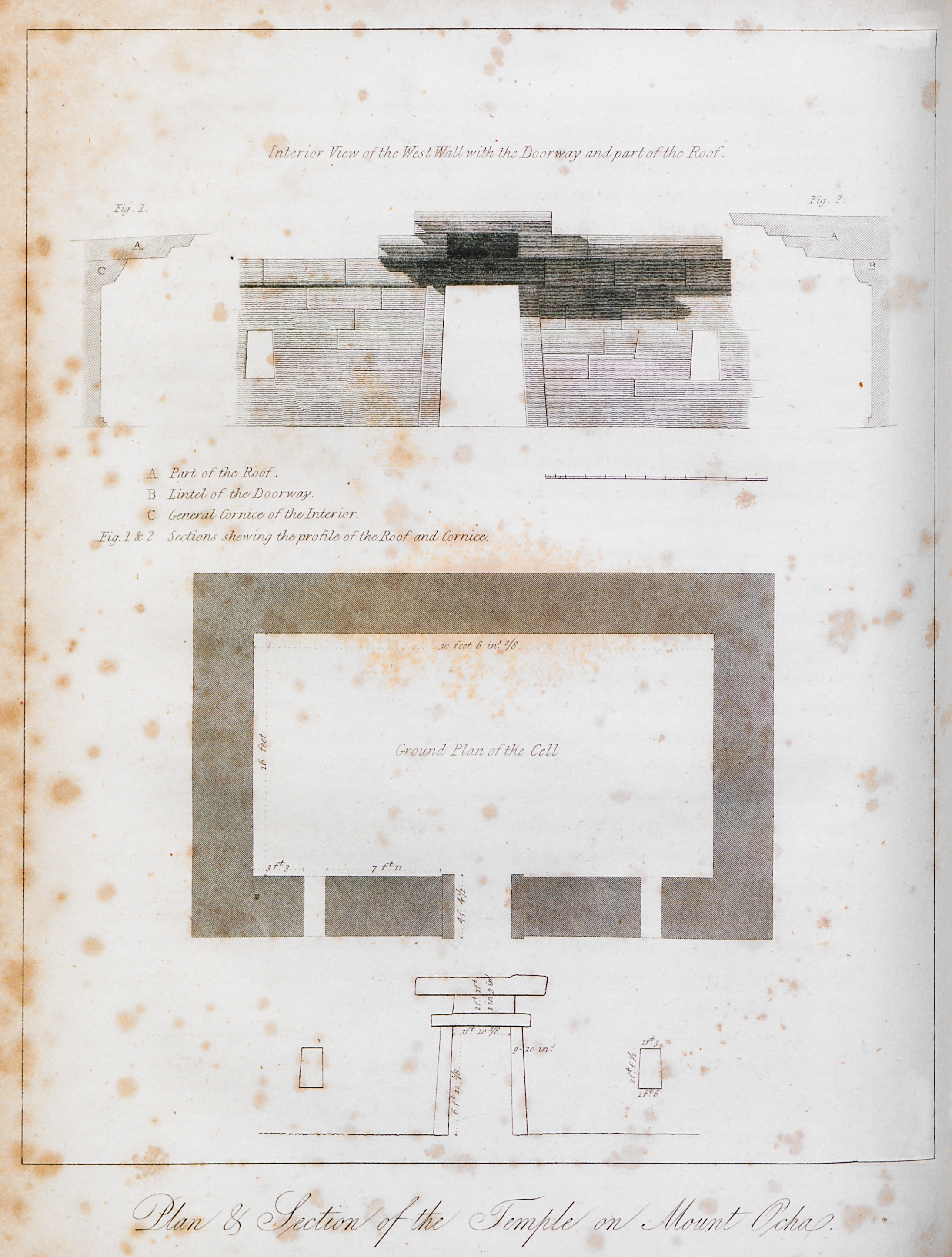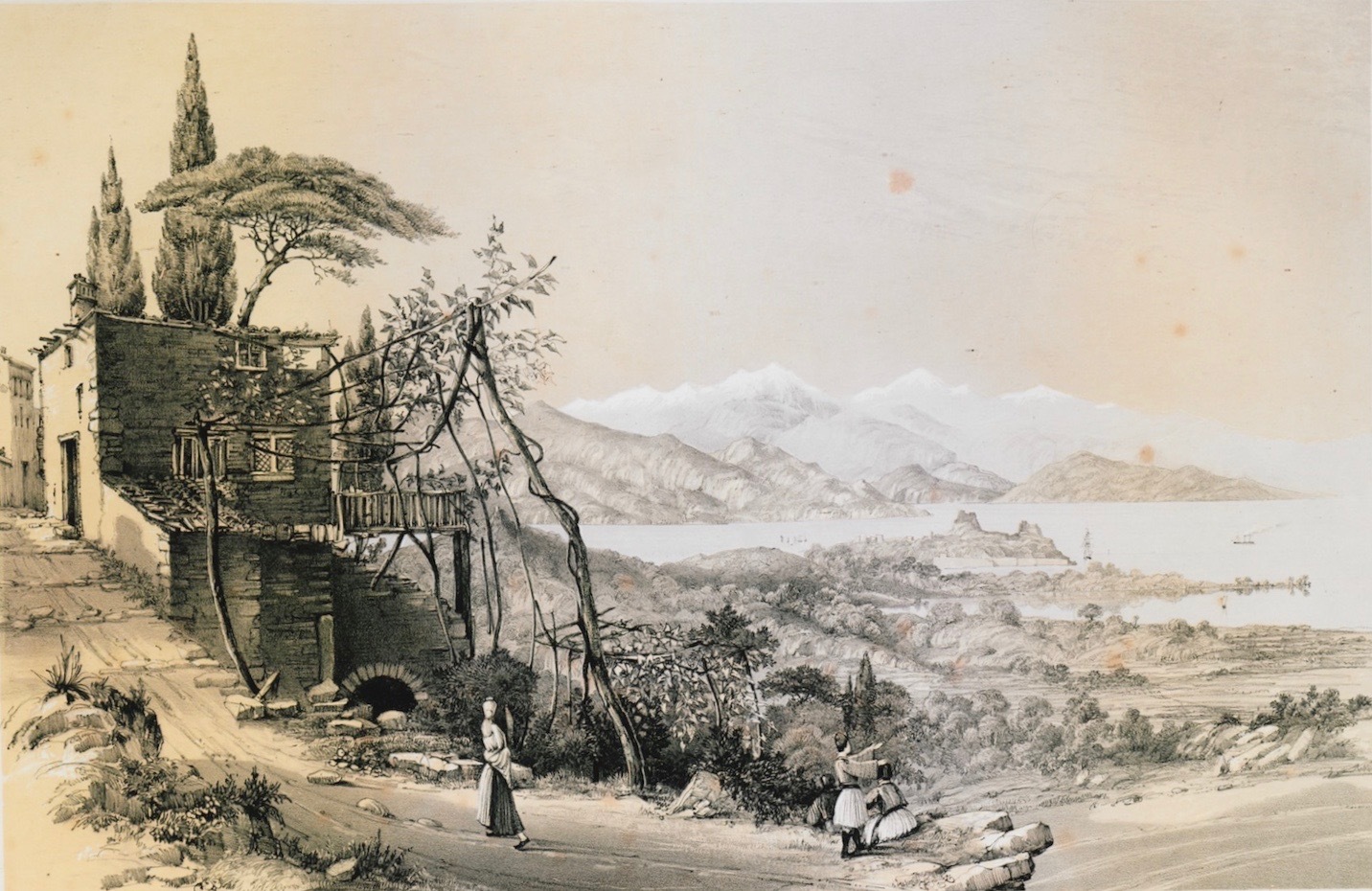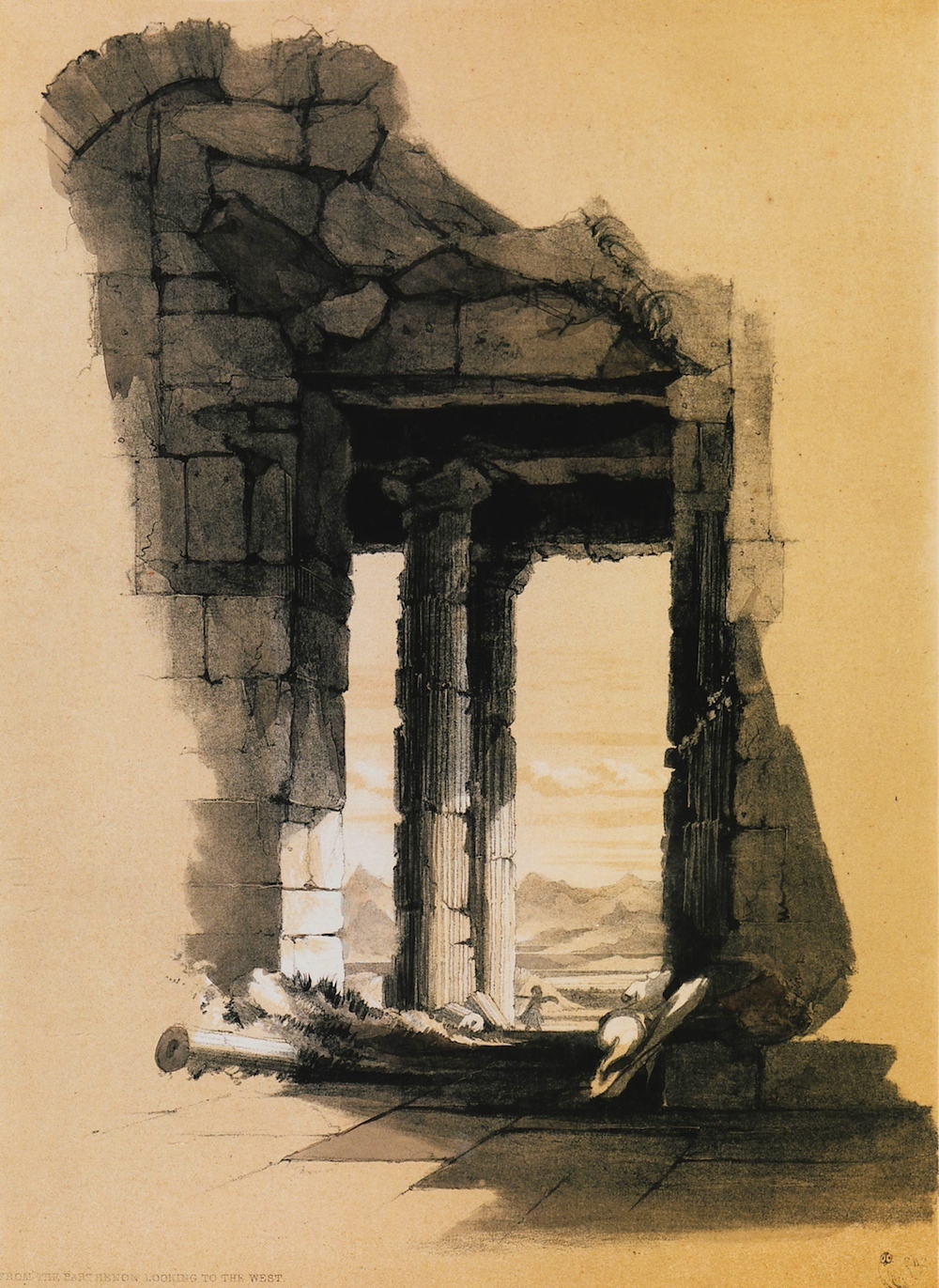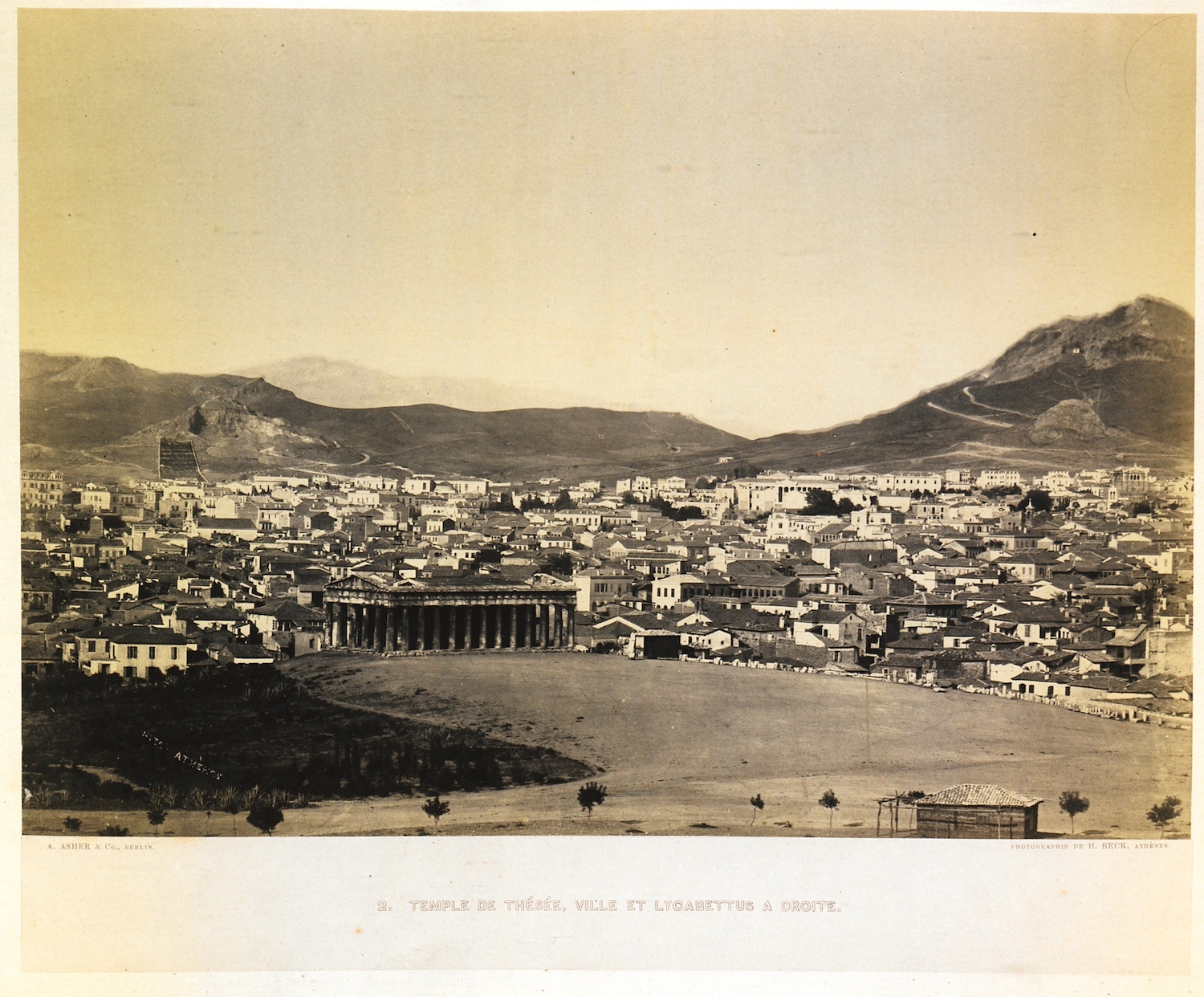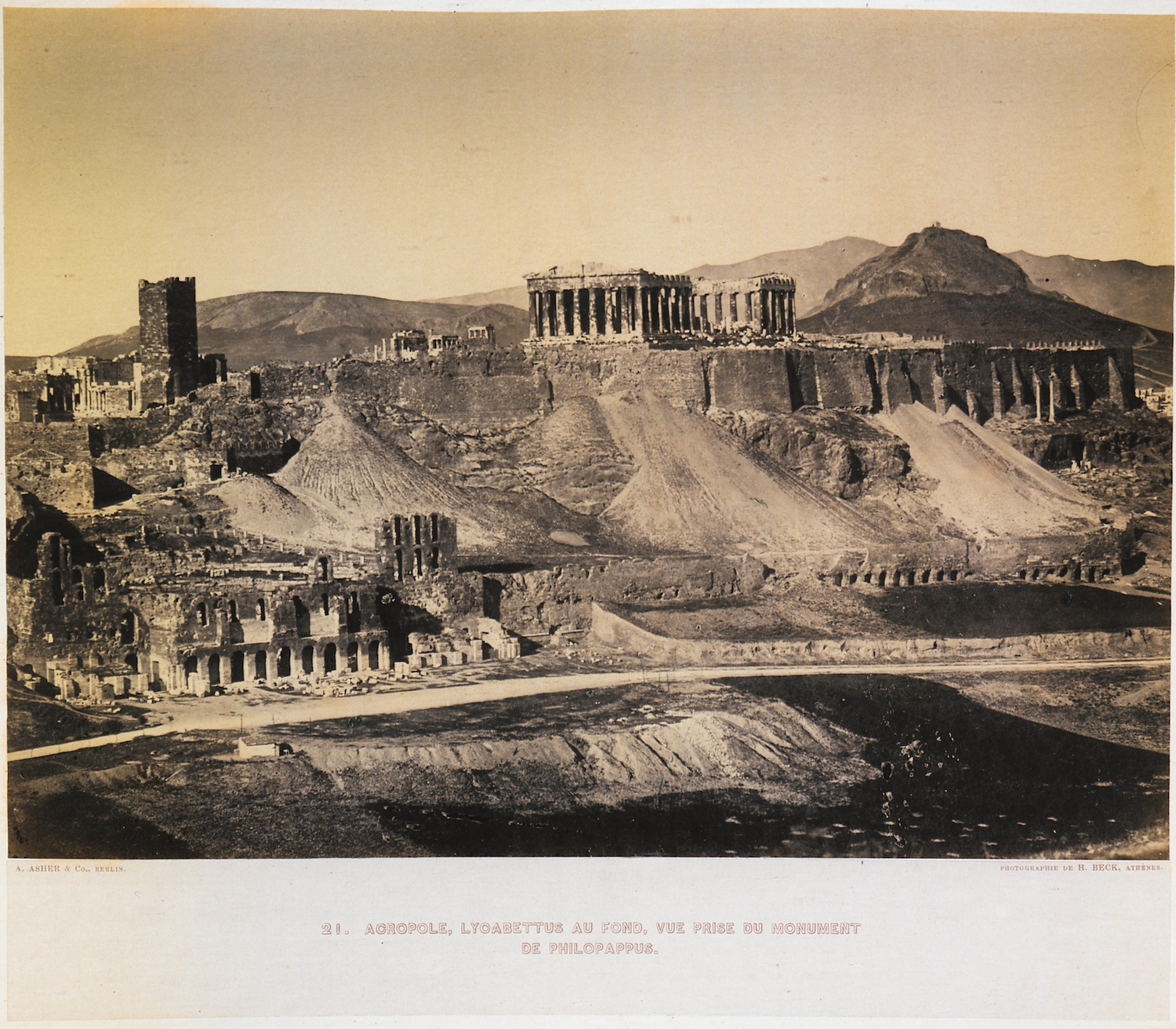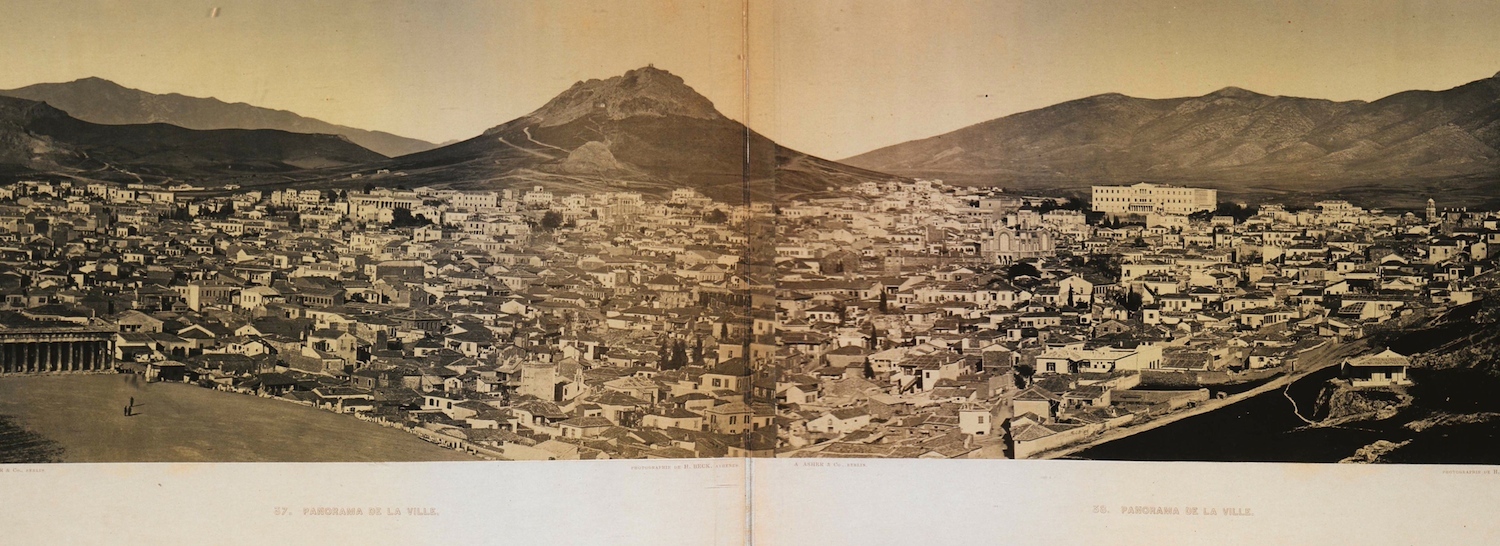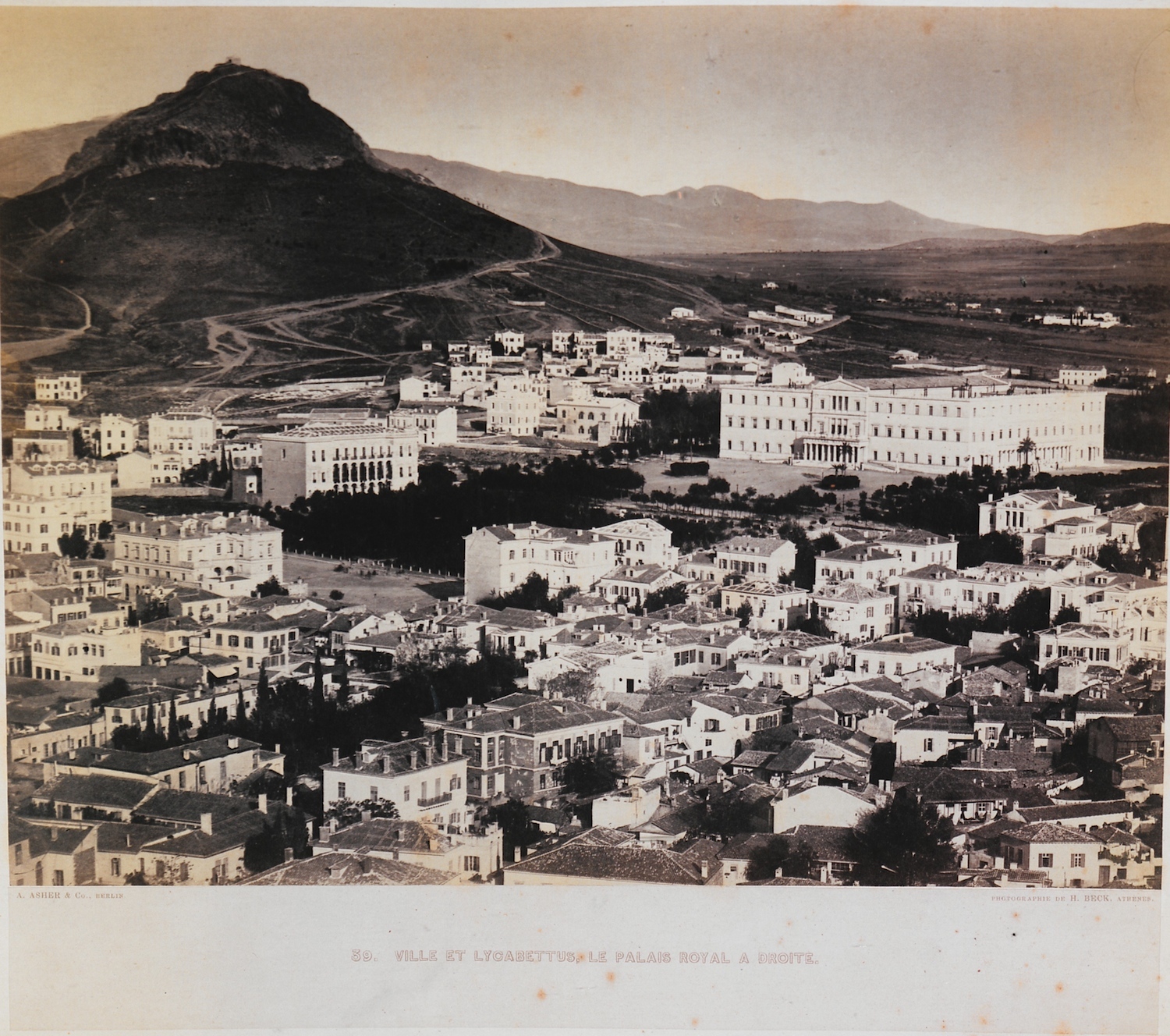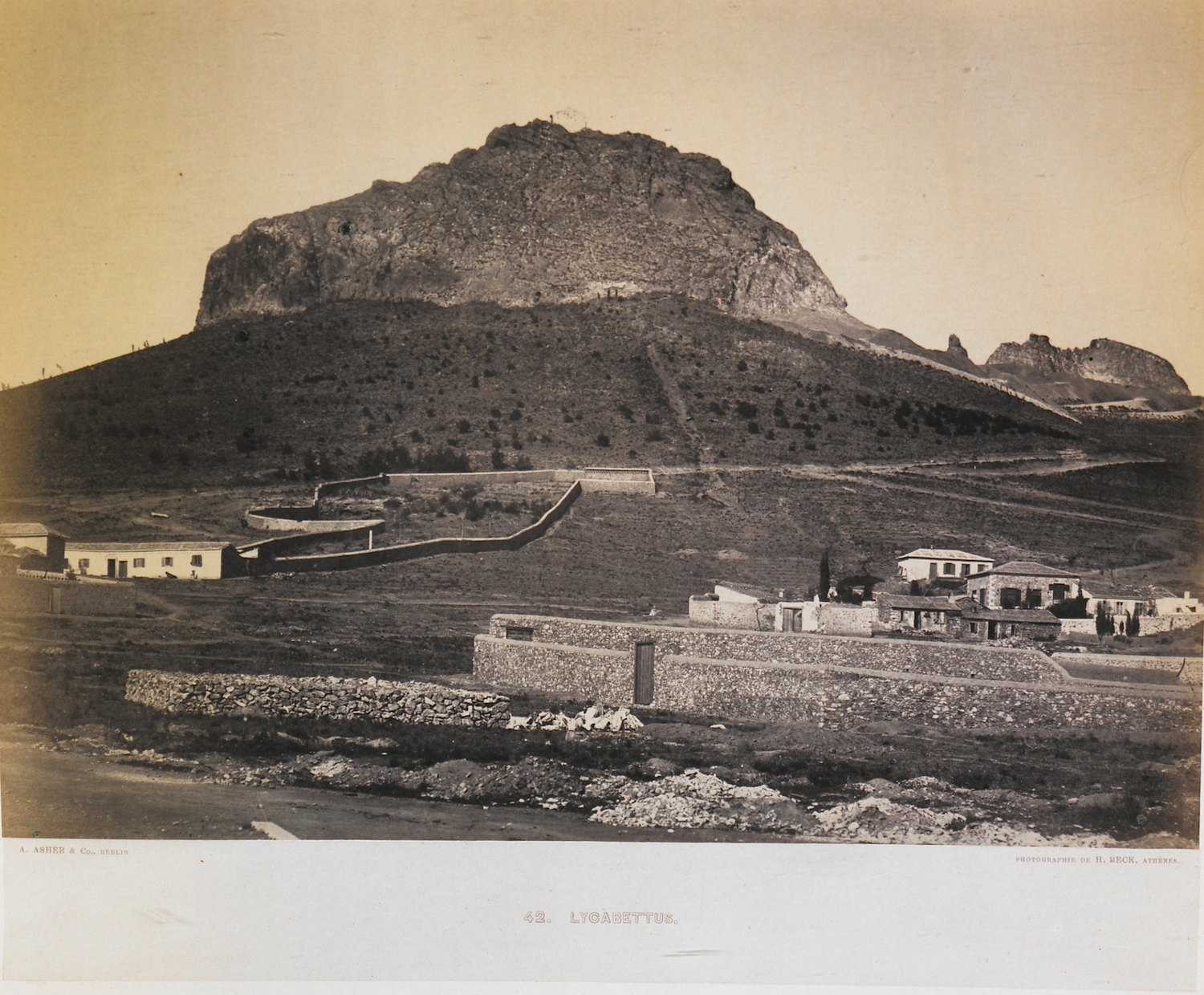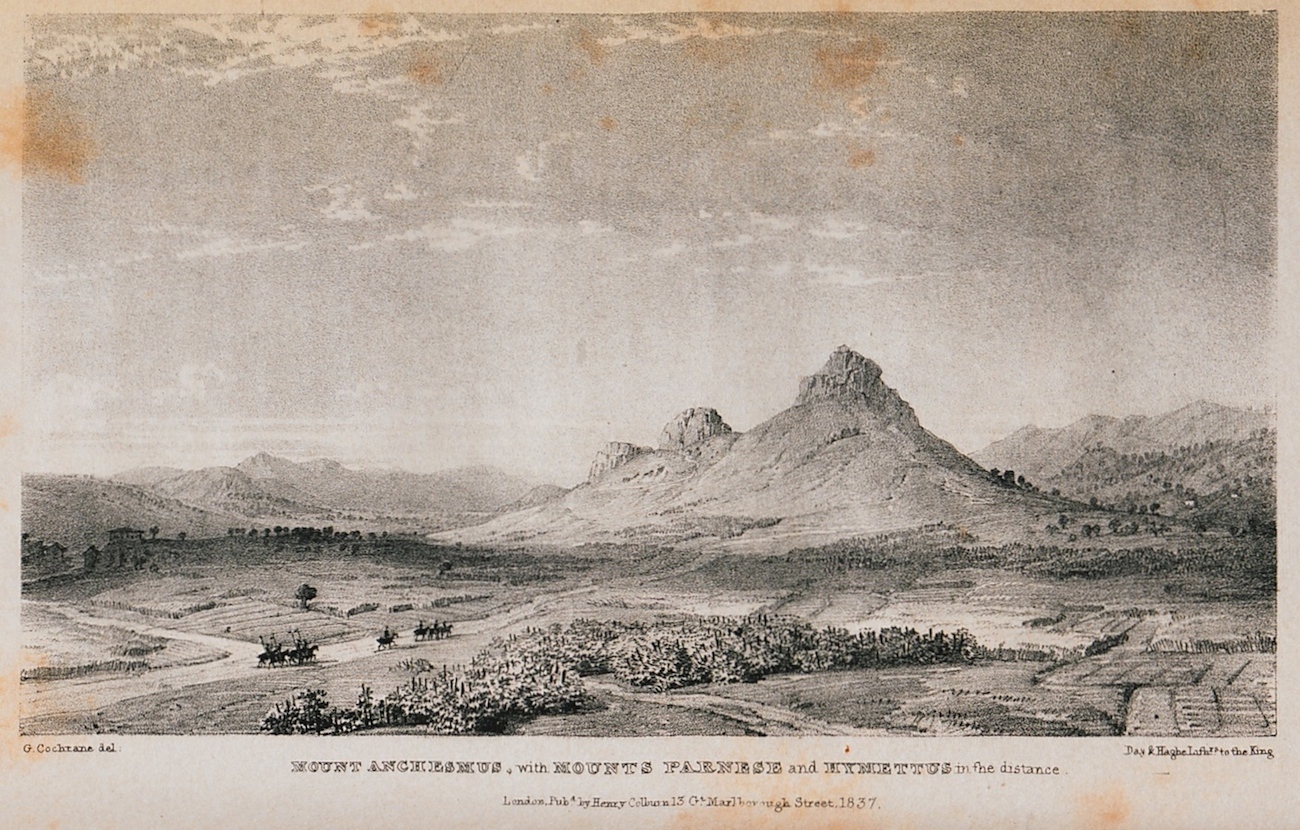Mountains (360 Subjects)
Athens seen from the ancient Sacred Way. In the middleground, the Acropolis. In the background, Mount Hymettus.
Oak tree from Mount Parnassus.
Imaginary reconstruction of ancient Sparta.
The Corinthian gulf. On the left, Acrocorinth. On the right, the northern coast of the Peloponnese.
View of Mount Parnassus.
Topographical map of the surrounding area of the stadium or hippodrome on Mount Lykaion, Arcadia.
1. Plan of the stadium or hippodrome on Mount Lykaion, Arcadia. 2, 3. Remains of wall at the site. 4. One of the stone bassins of the cistern (rectangular room) at the northern end of the eastern side of the stadium.
Mount Taygetus seen from Sparta.
1-3. View, reconstruction and plan of the Cave of Heracles on Mount Cynthus, Delos island. 4-9. Architectural features of columns and part of wall surrounding the sanctuary of Zeus and Athena on Mount Cynthus, Delos.
1. Map of the area around the church of Taxiarches on Mount Hellanion, Aegina island. The temple of Zeus Hellanius was built on that same site. 2, 3. View and reconstruction of the Hellenistic wall around the temple of Zeus Hellanius, Aegina island. 4, 5. Fragments of inscriptions from Mount Hellanion. 6. Plan of the temple of Aphaia.
The monastery of Hagios Gerasimos at the feet of Mount Ainos, Cephalonia.
Mount Ida, or Psiloritis, Crete, 1869.
Mount Penteli seen from the hills of Marathon, 1870.
Landscape at the gulf of Corinth. In the distance, Mounts Parnassus and Helicon.
Greek uprising in Thessaly, 1878: View of Mount Pelion from the gulf of Volos.
View of Mount Olympus from the plain of Thessaly. Mount Olympus marked the northeastern border of Greece from the Treaty of Berlin (1878) to the Treaty of Bucarest (1913).
View of Piraeus from the spot called “seat of Xerxes” on Mount Aigaleo.
View of Naousa and Mount Vermion.
View of Mount Olympus from Naousa.
The house in Naousa in which British colonel Synge was held hostage in 1878, during the uprising of Thessaly and Macedonia.
The structure known as “drakospito” (ogre's house) on top of Mount Ocha, Euboea. According to the author, it was and ancient sanctuary. However, although animal remains and fragments of vases have been discovered on the site, to date the exact function of the building has not been established with certainty.
The structure known as “drakospito” (ogre's house) on top of Mount Ocha, Euboea. 1. Interior view of the entrance and part of the façade. 2. Plan of the site. 3. Plan and section of the entrance.
View of the Acroceraunian mountains (Albania) from Corfu. In the background, the town of Corfu with the Old and New Fortresses.
The mountains of Attica seen from the Acropolis.
Temple of Hephaestus at Theseion quarter. In the background, on the right, Lycabettus Hill.
The Odeon of Herodes Atticus, the Acropolis and Lycabettus hill, seen from Philopappos hill.
Panoramic view of Athens from the Acropolis. On the left, the temple of Hephaestus at Theseion quarter. On the right, the cathedral of Athens (Metropolis) and the Royal Palace (today Parliament of Greece). In the background, Lycabettus hill.
The Royal Palace (today Parliament of Greece). In the background, Lycabettus hill.
View of Lycabettus hill.
Lycabettus hill and Mount Parnitha. In the distance, Mount Hymettus.


